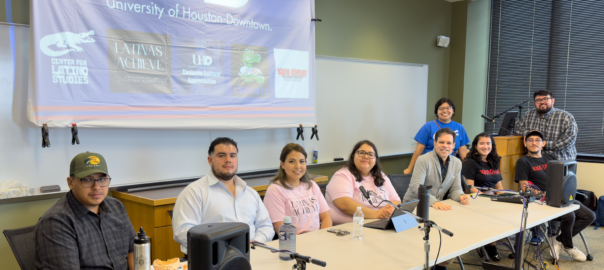Introduction
Storytelling in the 21st Century – Our Academic Selves was a smash success. With roughly 70 attendees from all over central Texas, it was an amazing crowd of film makers, artists and academics showcasing their approaches to both teaching and practicing storytelling in the 21st century. The stories and lived realities shared by those about experiences inside and outside the classroom was inspiring and set an amazing tone for the conference. Below you will find a short summary of each presentation, along with photos and video that document them, we hope you enjoy them and can join us at next years conference.
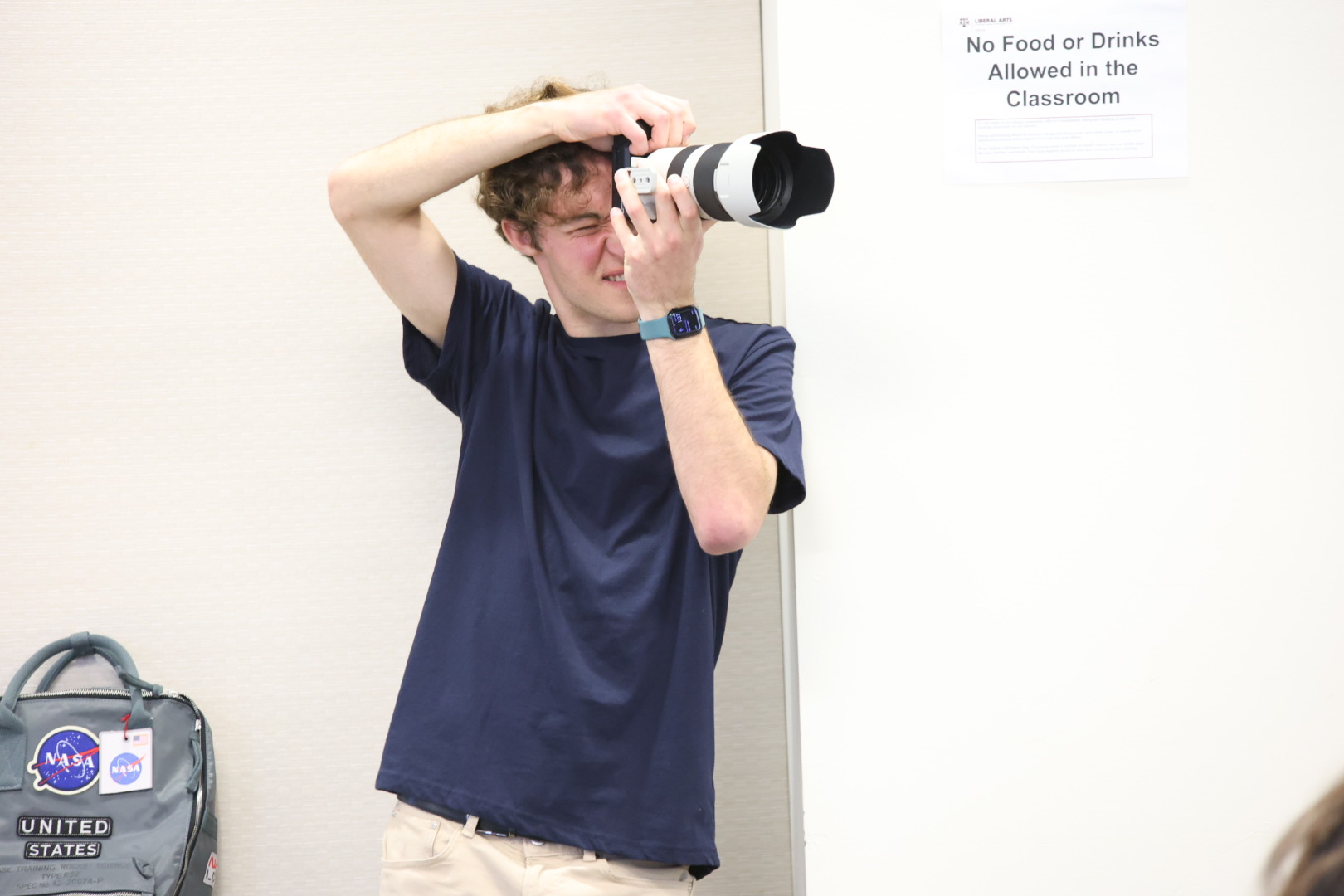
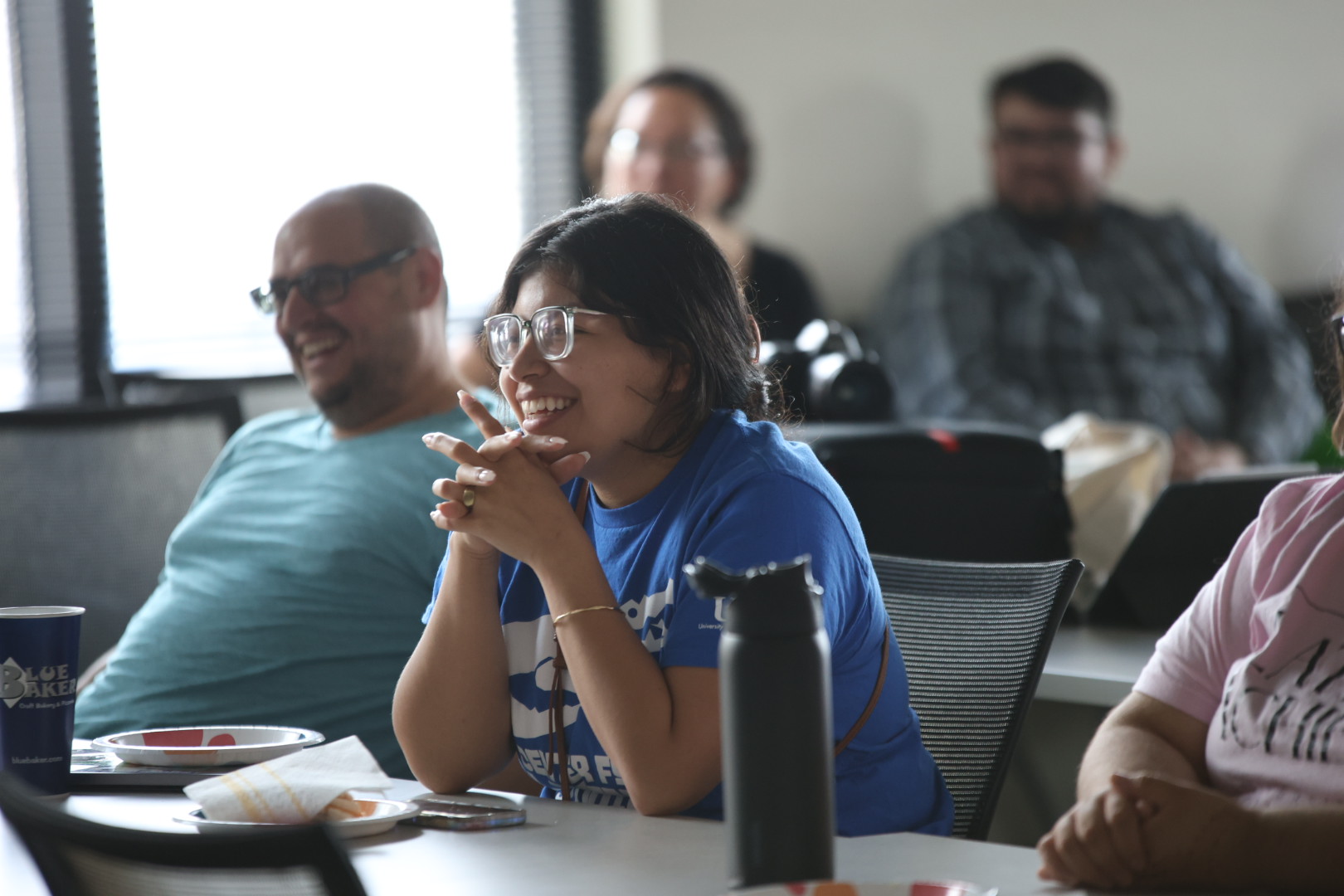
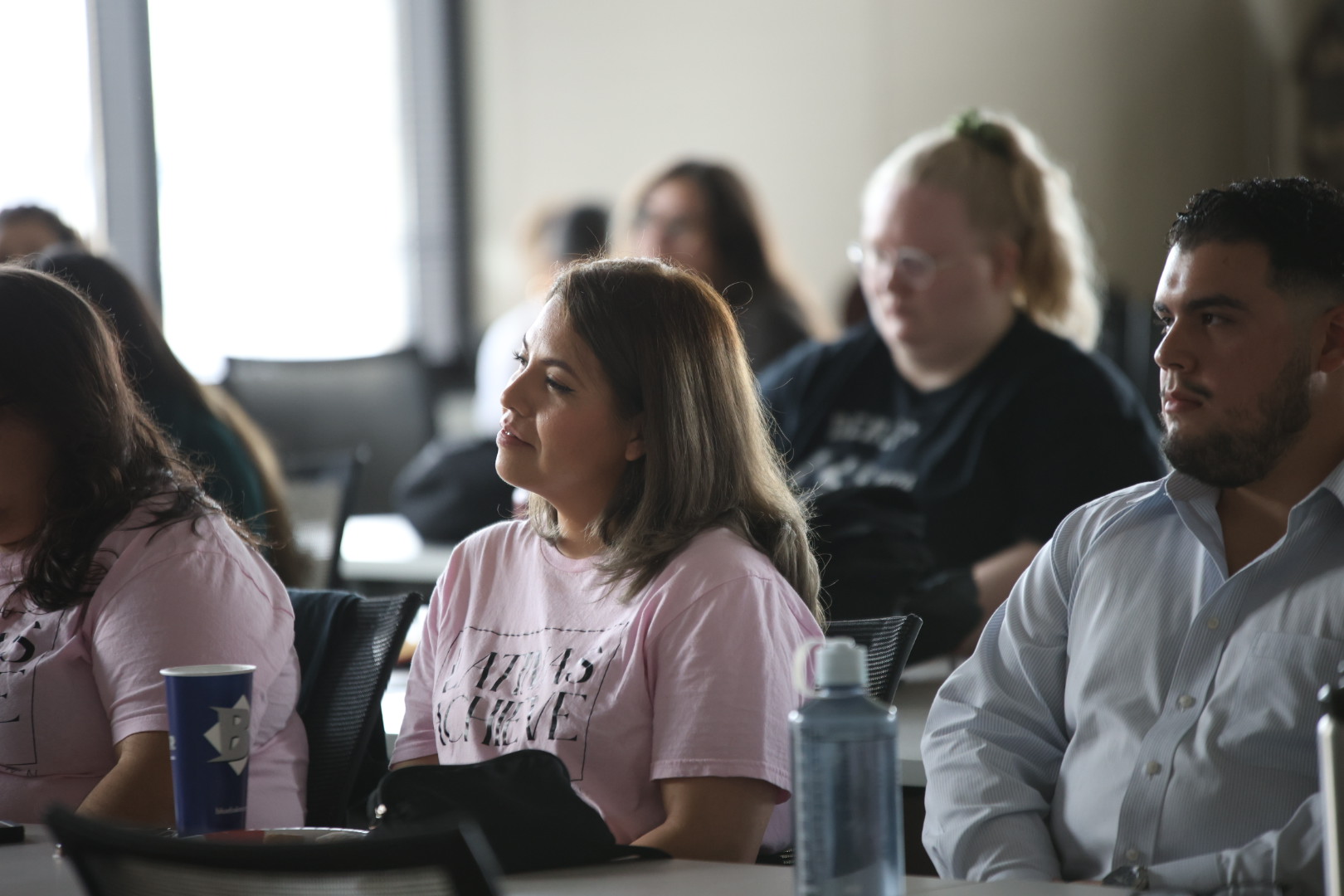
Panels
Texas A&M University, Department of Communication & Journalism, Media & Gaming Lab
The Media Gaming Lab was presented by professor Jonathan Guajardo and graduate student Rick Pulos, they introduced the approach of lab in terms of facilitating student, faculty and community engagement. Then student Connor McCormick presented experience as a year student. Senior and graduating student Zayno Rayne gave a presentation about his experiences of wanting to be part of the music scene, to becoming a booking agent for the Grand Stafford Theatre in Bryan, TX. Doctoral student David Dockery then gave a presentation about gaming and personalized experiences of narratives and spoke about the lab’s facilitation of a weekly gaming meet up. Overall the presentation was well received, great questions fielded, check out the video for more.
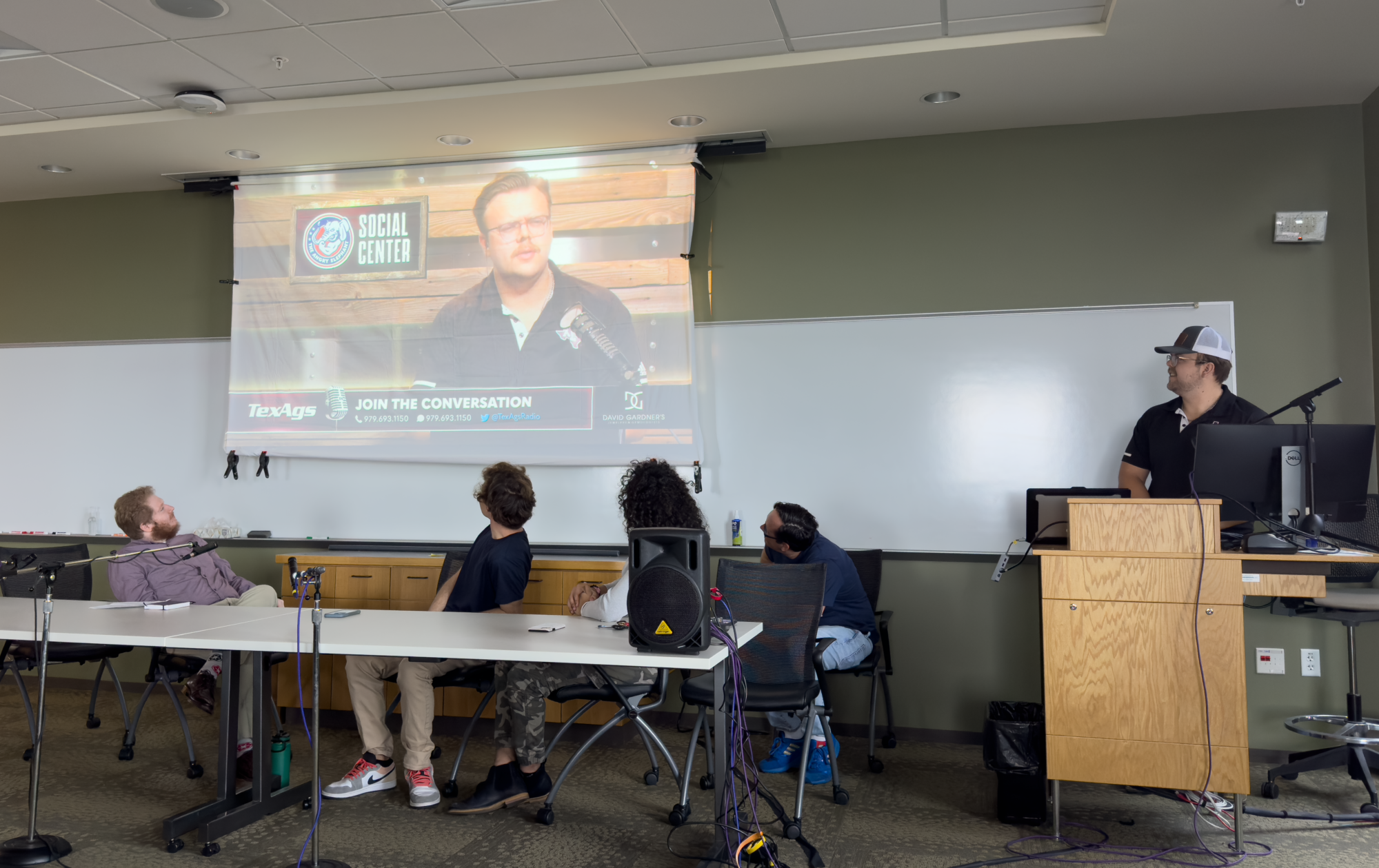
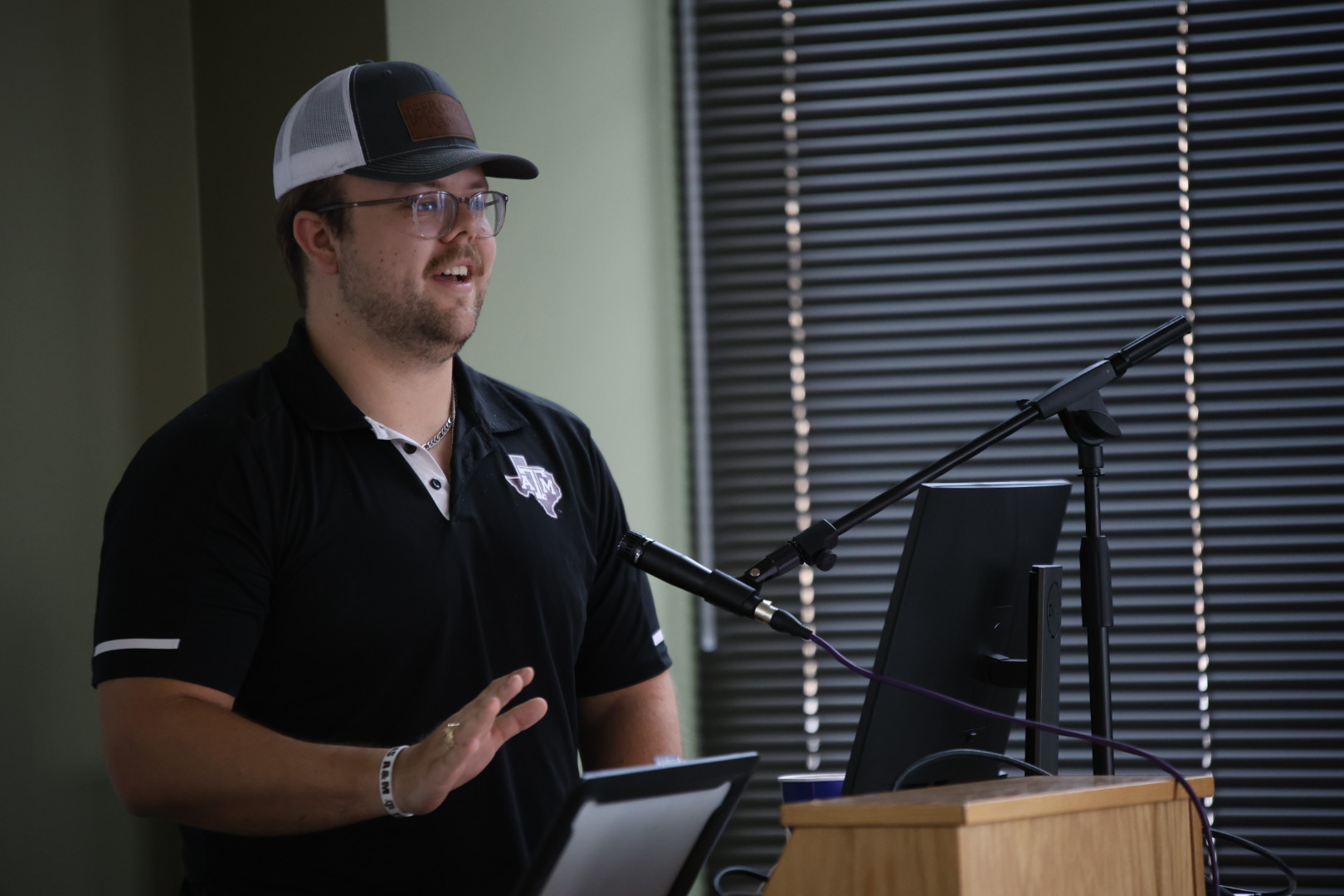
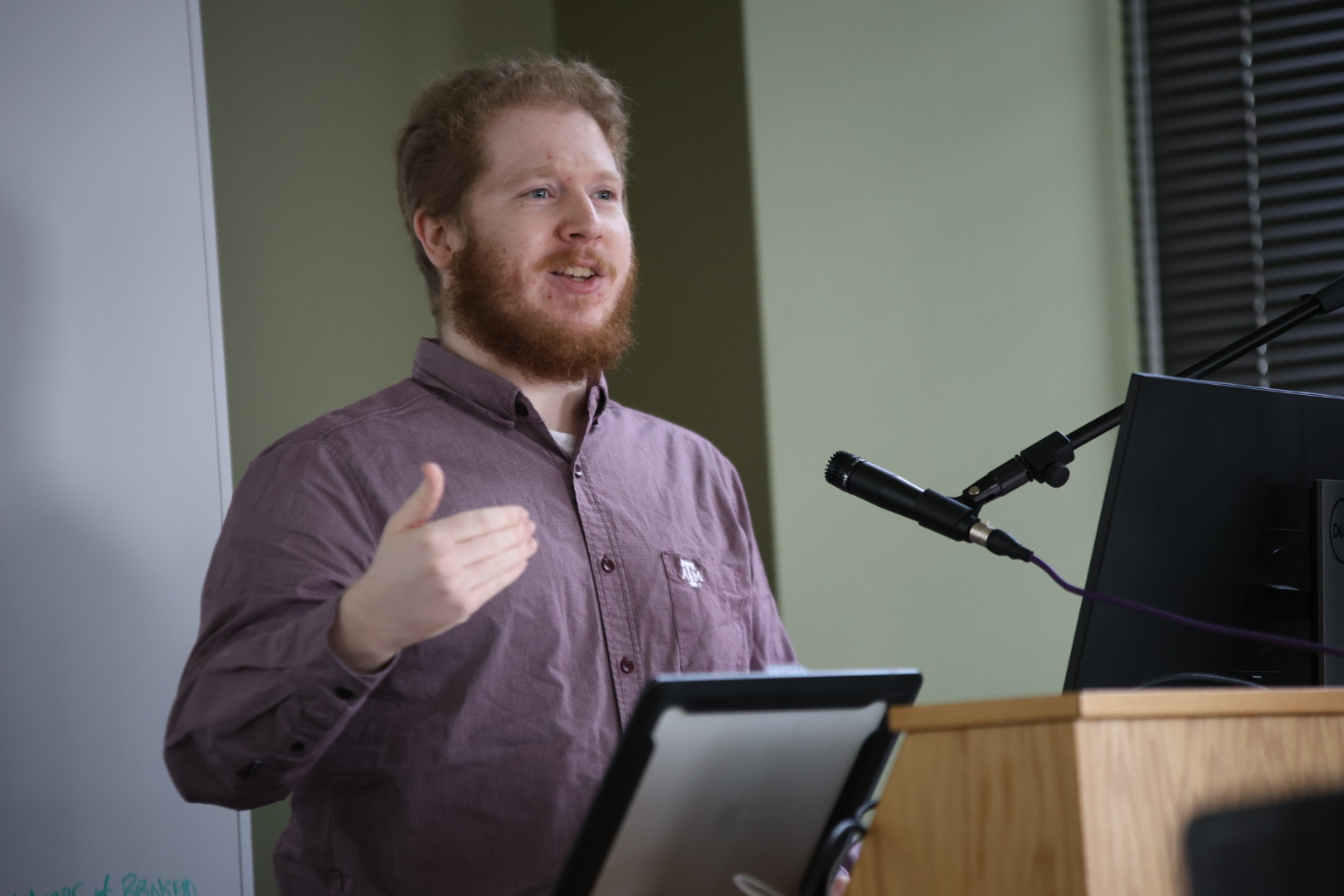
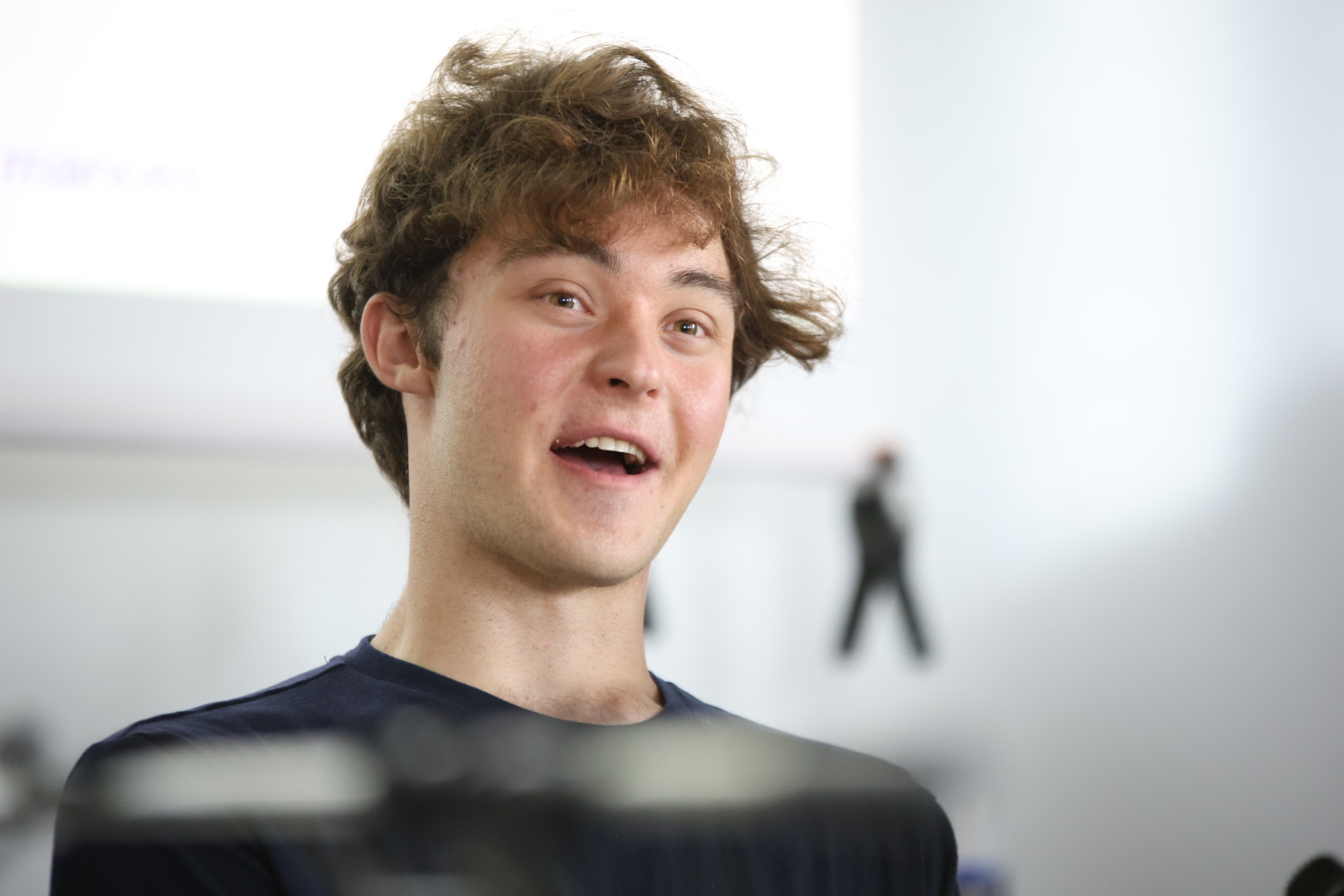
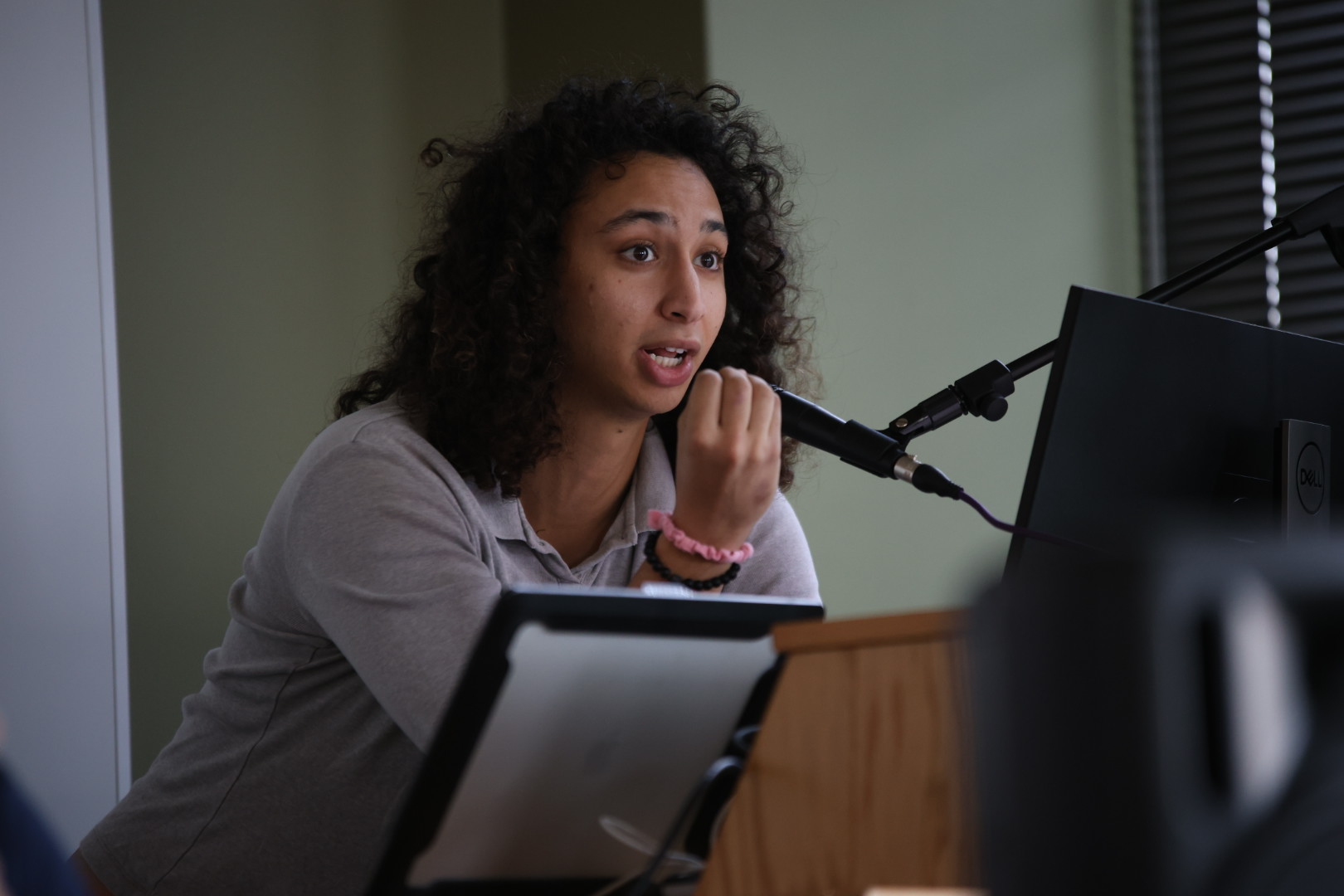
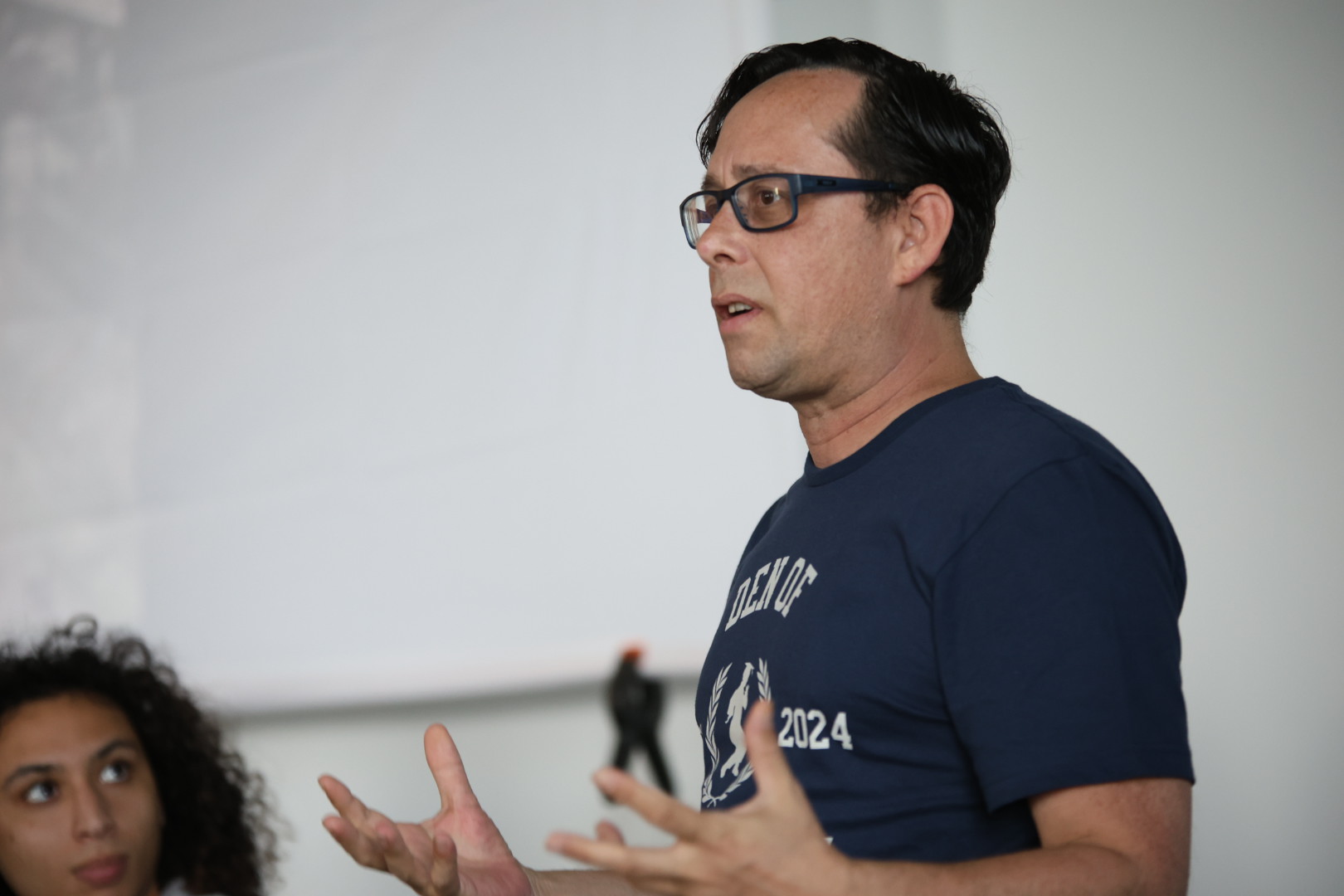
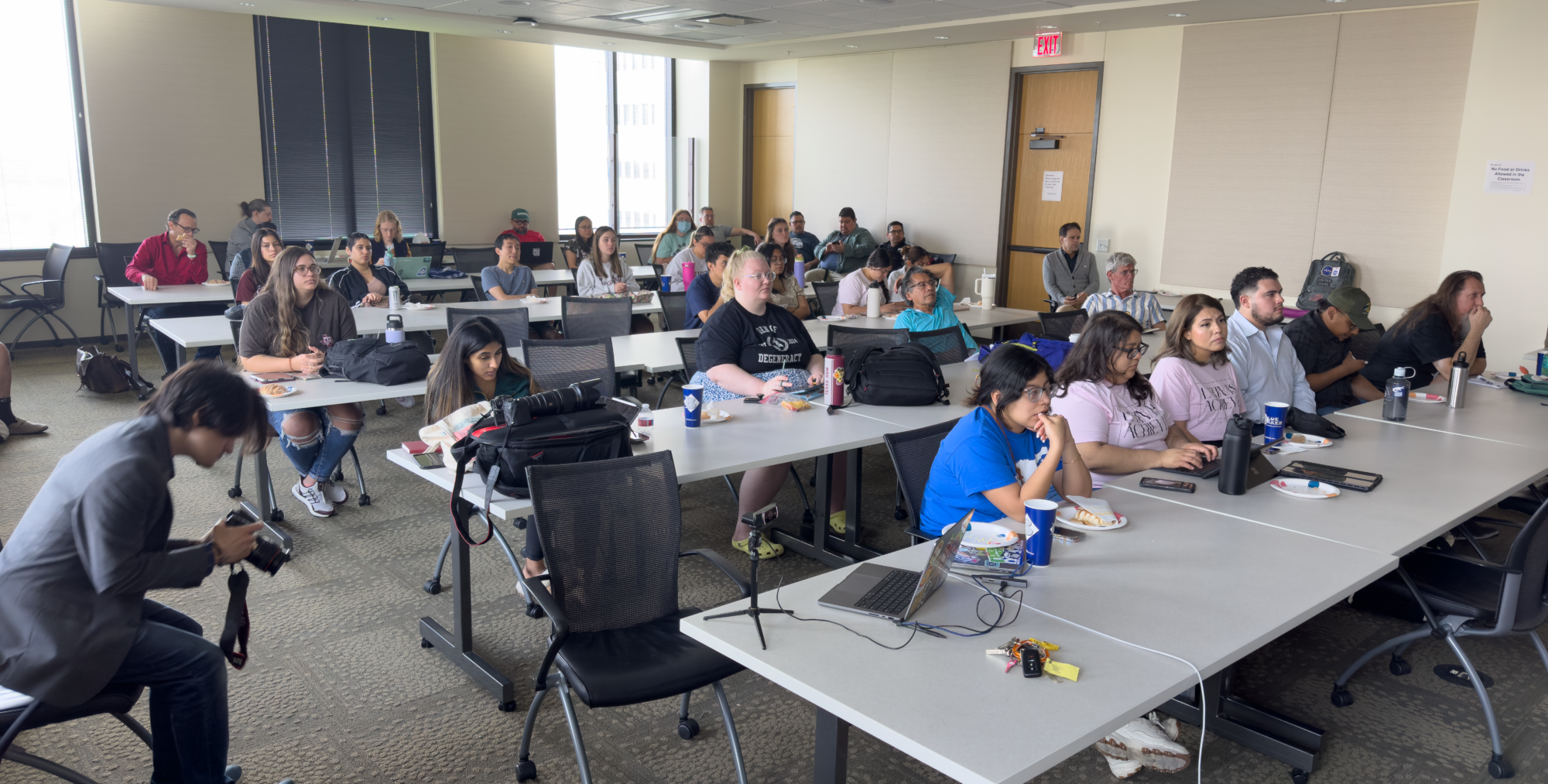
University of Houston-Downtown
The University of Houston-Downtown made their presence known at the 21st Century Storytelling Conference. Dr. Albert DeJesus, Dr. Anthony Ramirez, who are the co-directors of the Center for Latino Studies at the University of Houston-Downtown along with their student assistant Jasmin Rojas, brought various student organizations and alumni including Latinas Achieve, Conjunto Cultural Appreciation Group, and Que Onda Magazine. During the presentation, each group had an opportunity to share their experiences at UHD and their collaborative efforts with the Center for Latino Studies. What made this presentation special was how closely tied the group was. They called themselves “familia” or family. This was evident throughout the presentation as each presenter was very open and vulnerable while sharing their work, experiences, and more. During the Q&A portion of the presentation, led to a further discussion about Latinidad and identity with the audience as many of the audience members felt a connection to the presentation. This led to a very powerful emotional moment for everyone at the conference. It was a real honor and privilege for the University of Houston-Downtown’s Center for Latino Studies and our various student organizations to be at this conference. We hope to make this an on-going tradition.
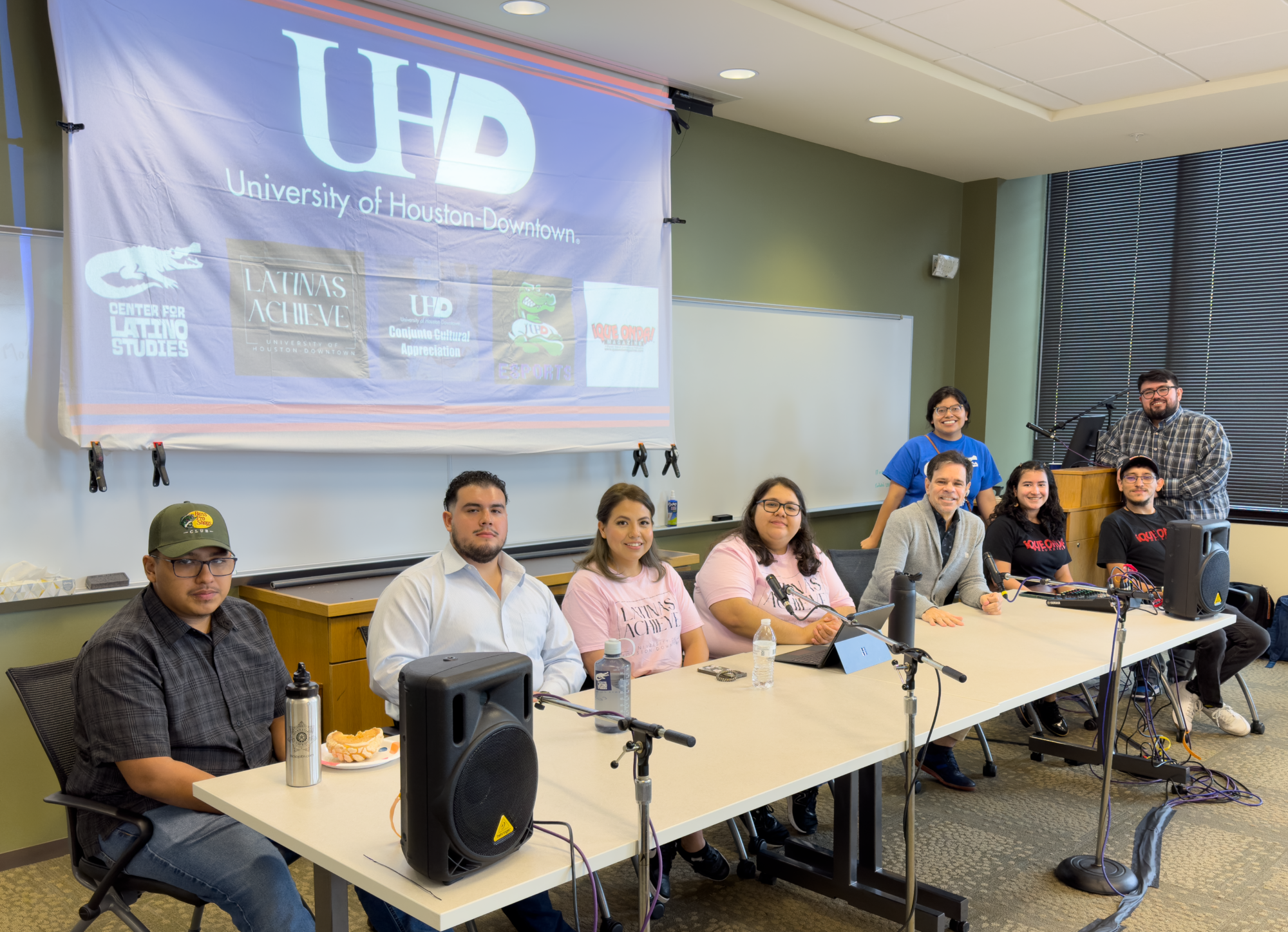
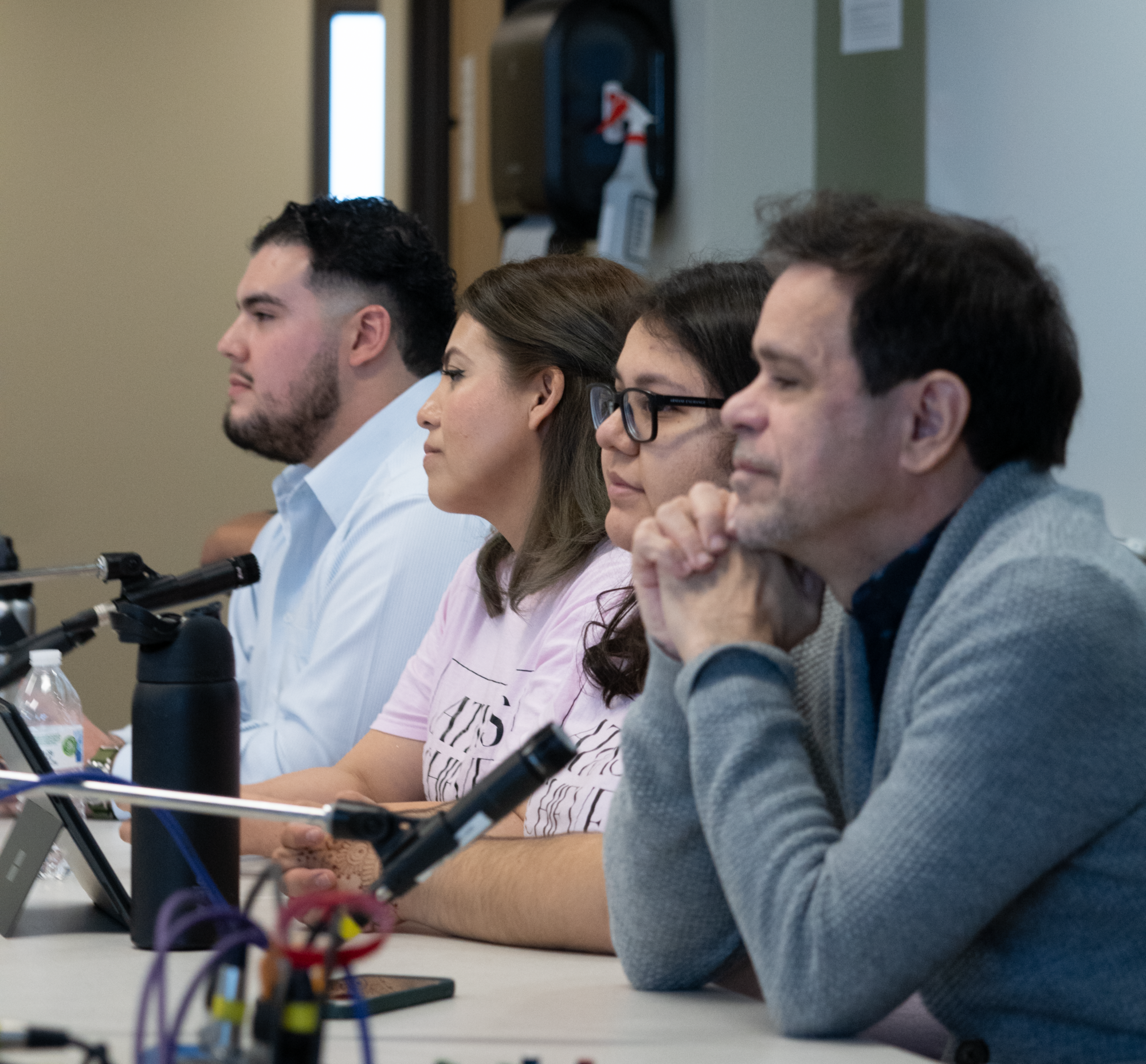
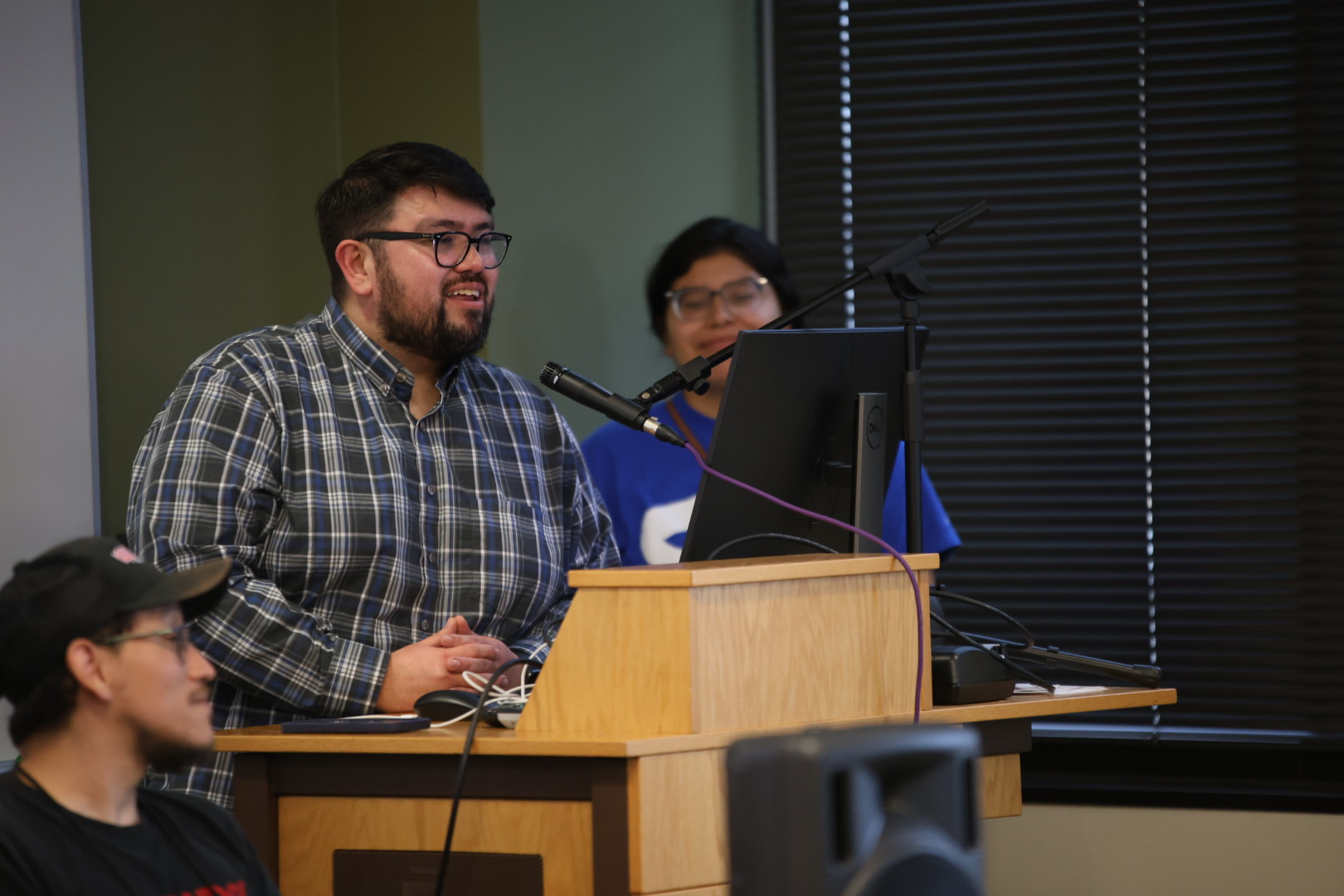
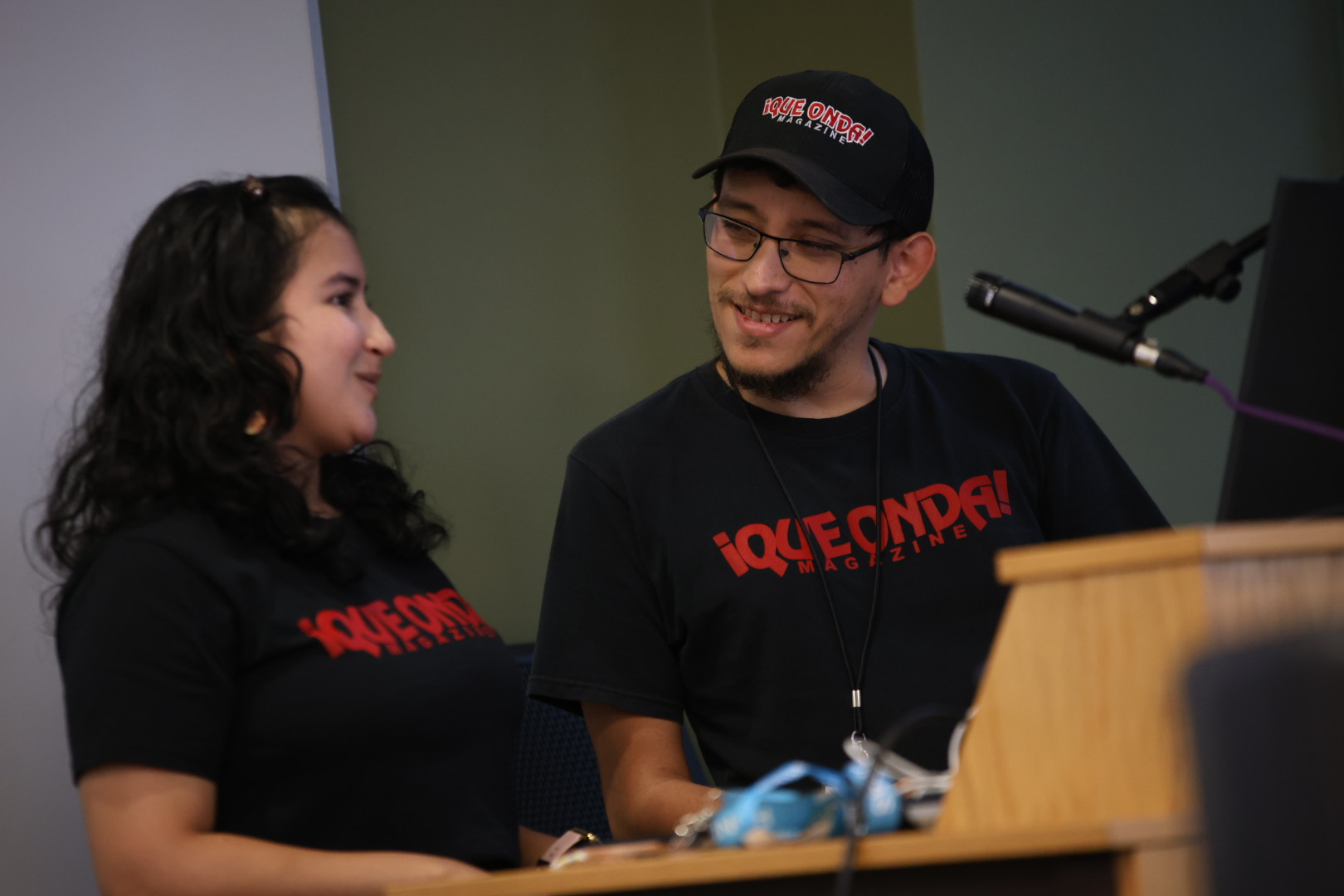
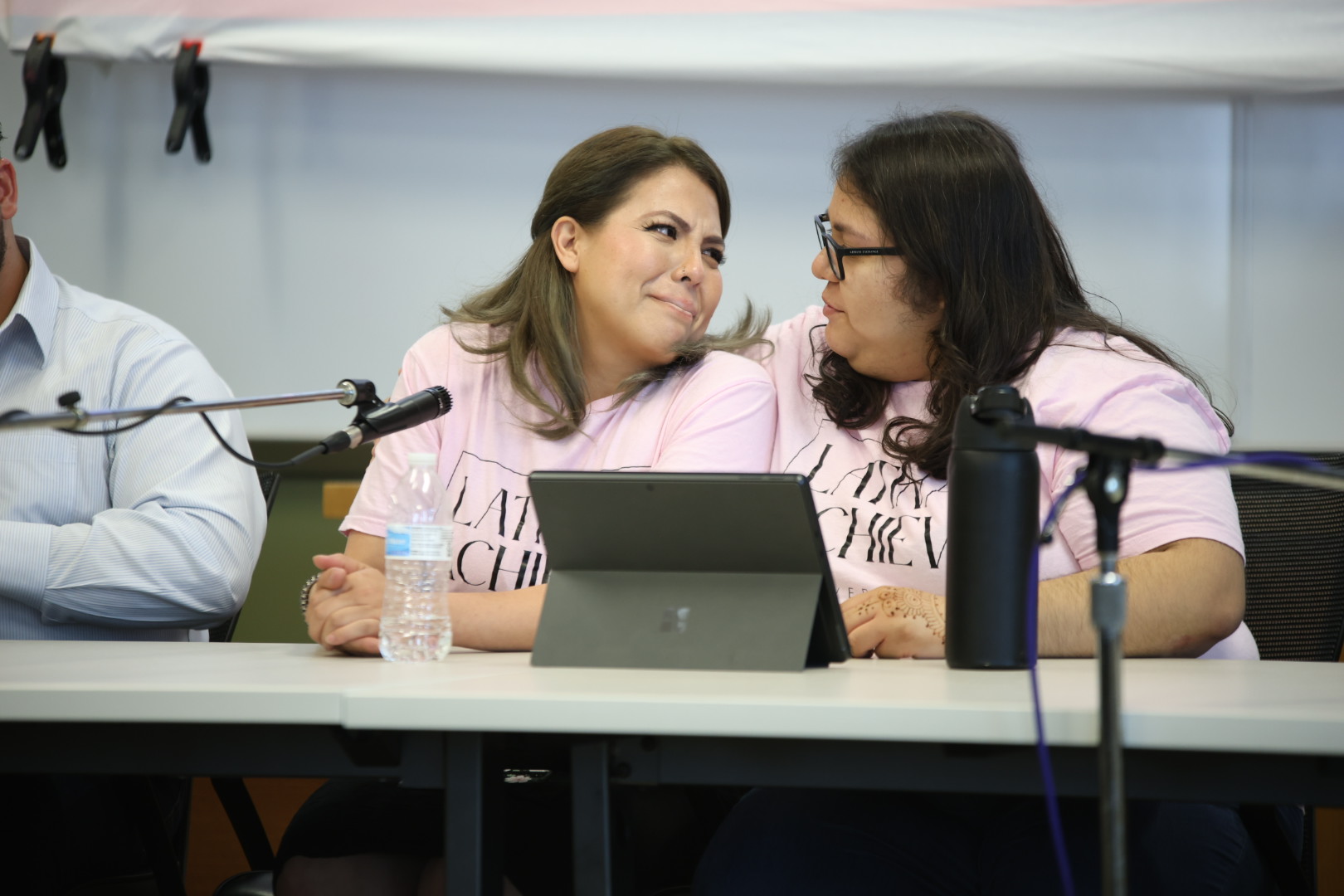
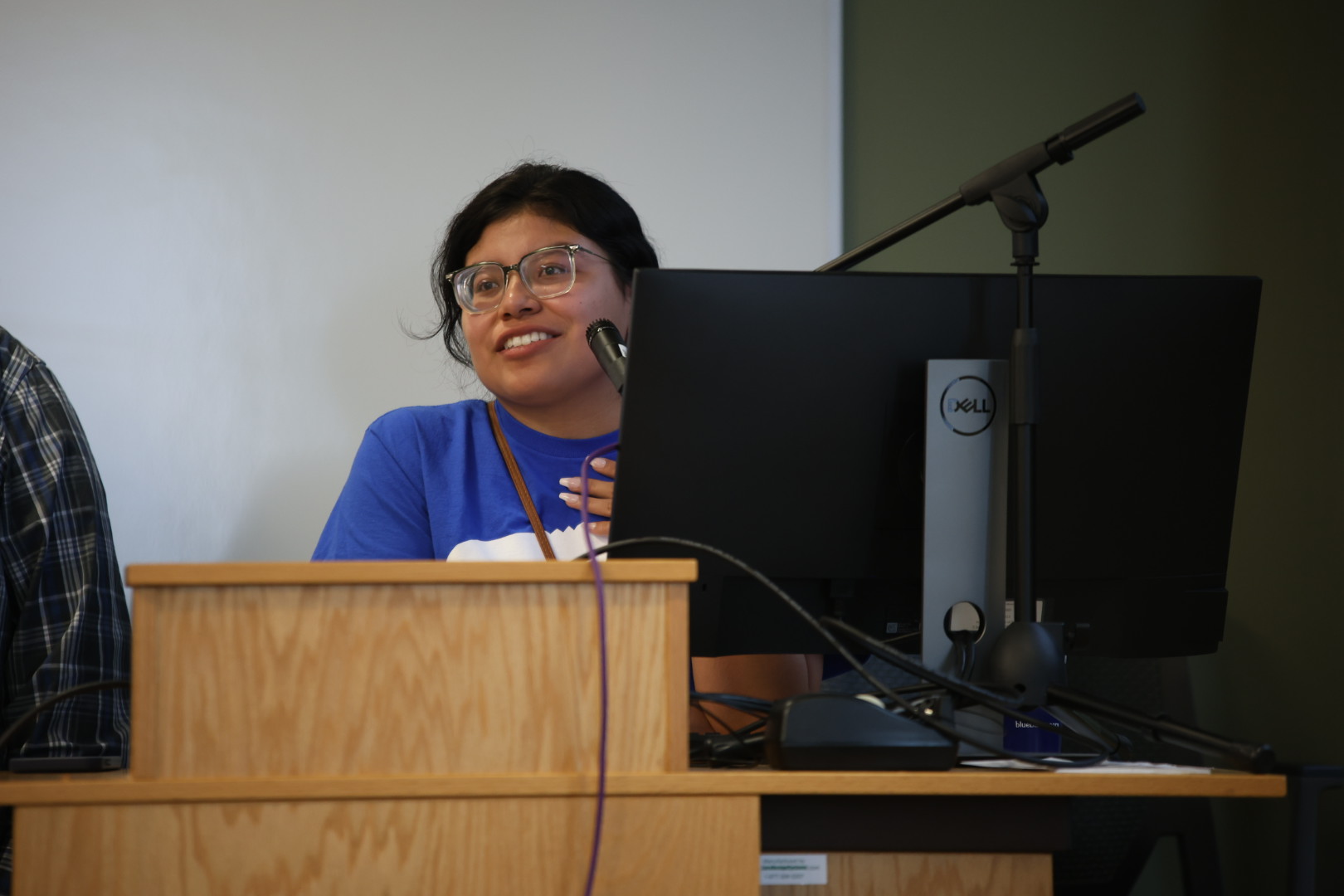
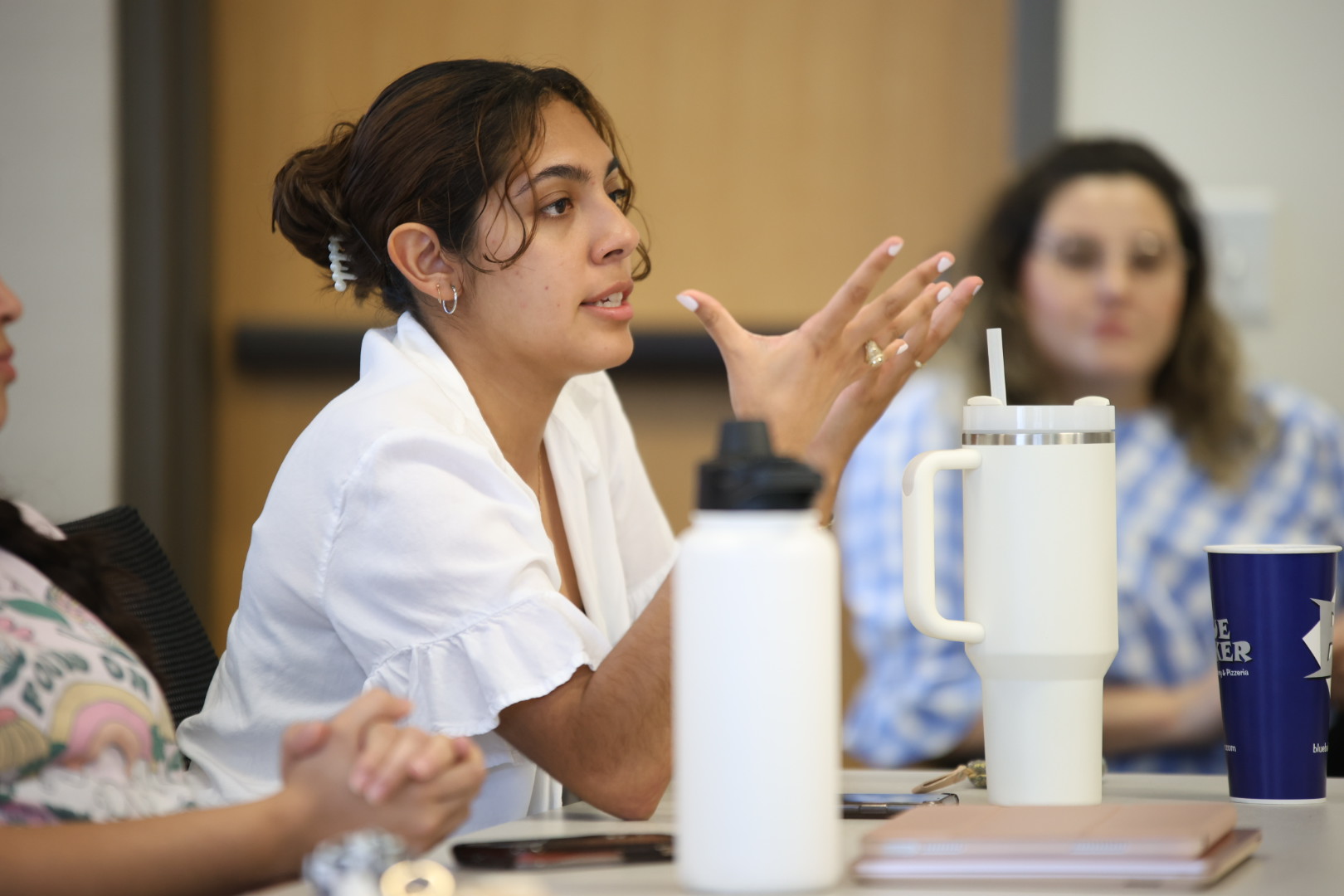
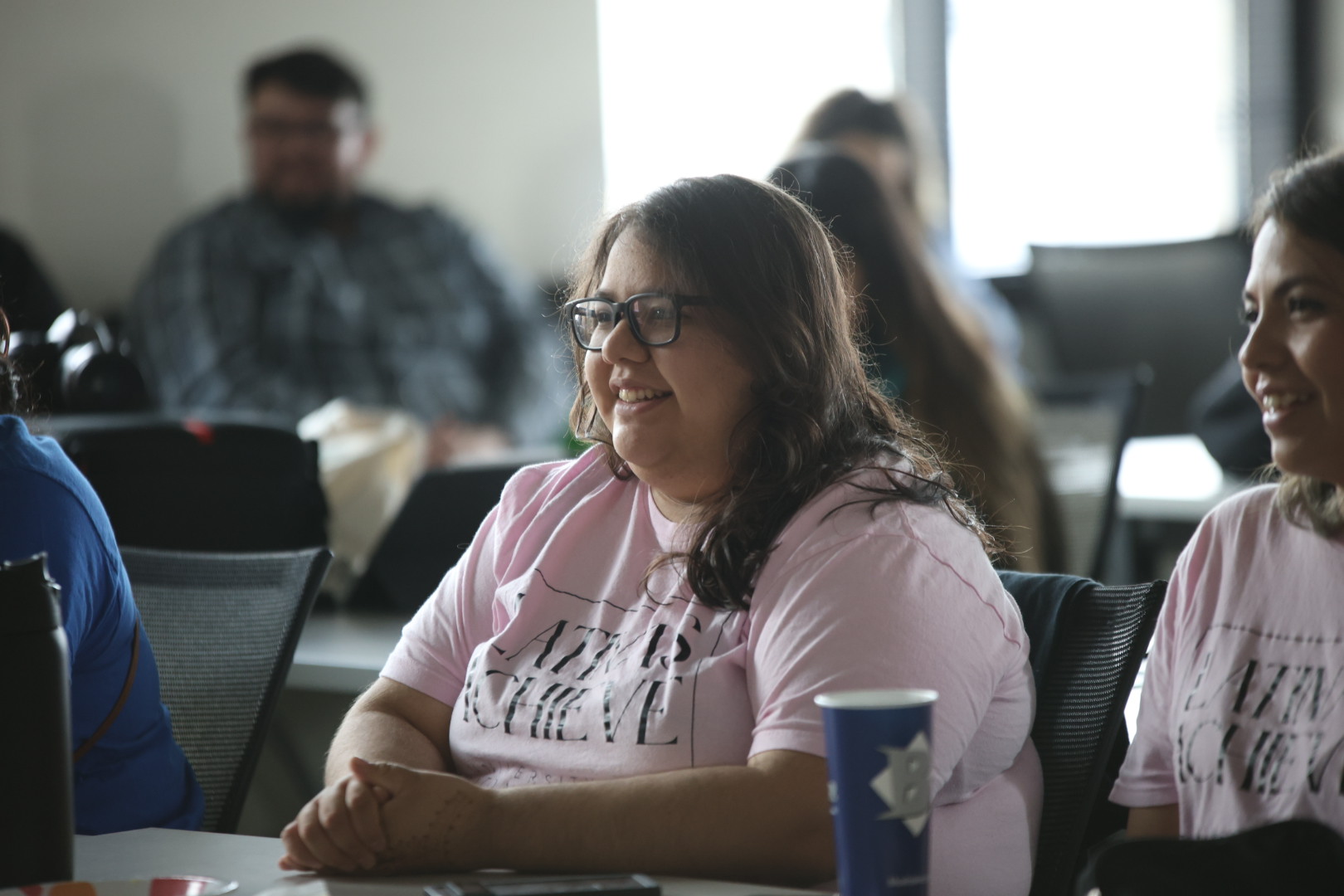
Keynote
The keynote was presented by joey lopez phd and focused on the theme of the conference Storytelling in the 21st Century, Our Academic Selves. His presentation works through his own lived reality and how he uses storying telling as his way of publishing works.
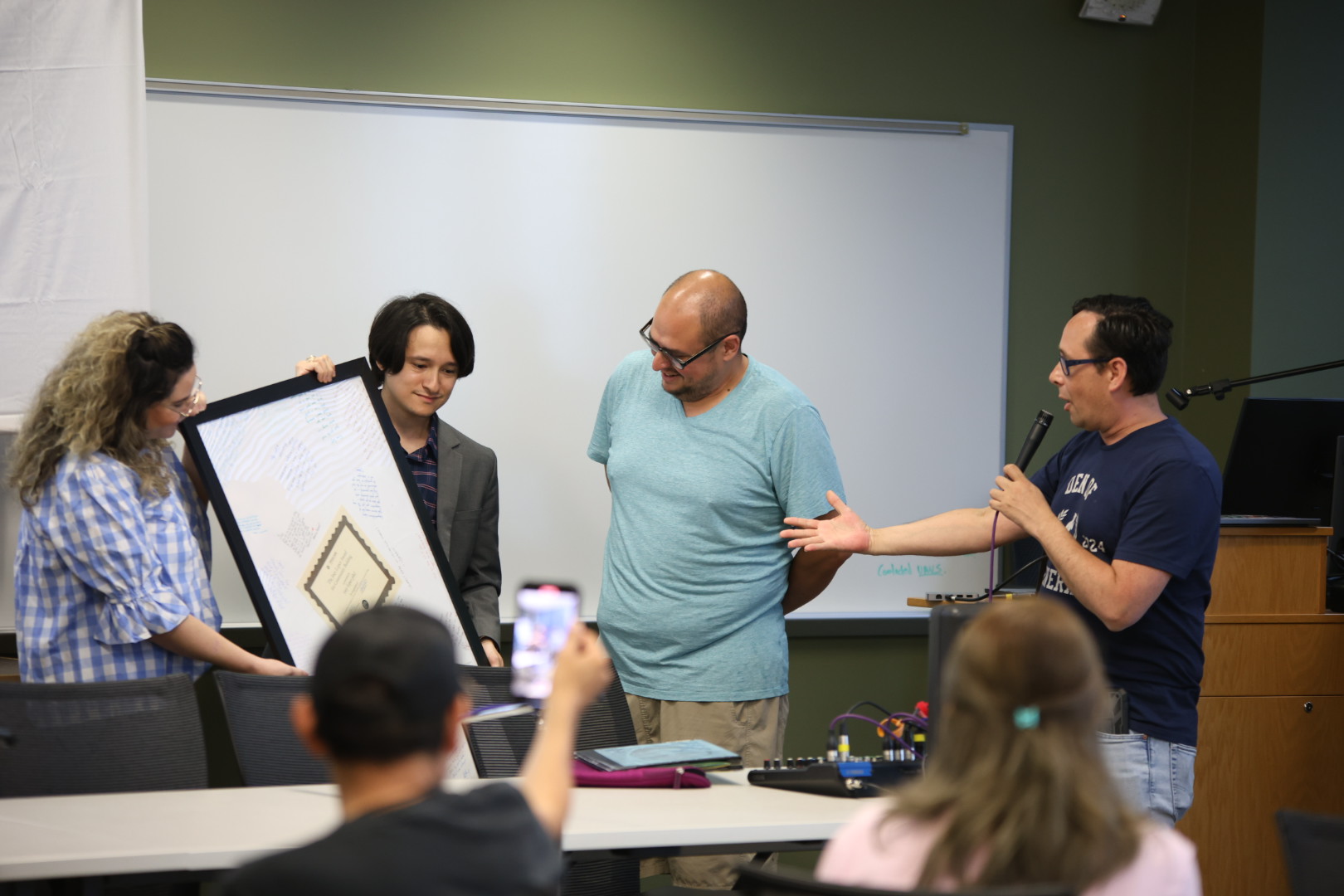
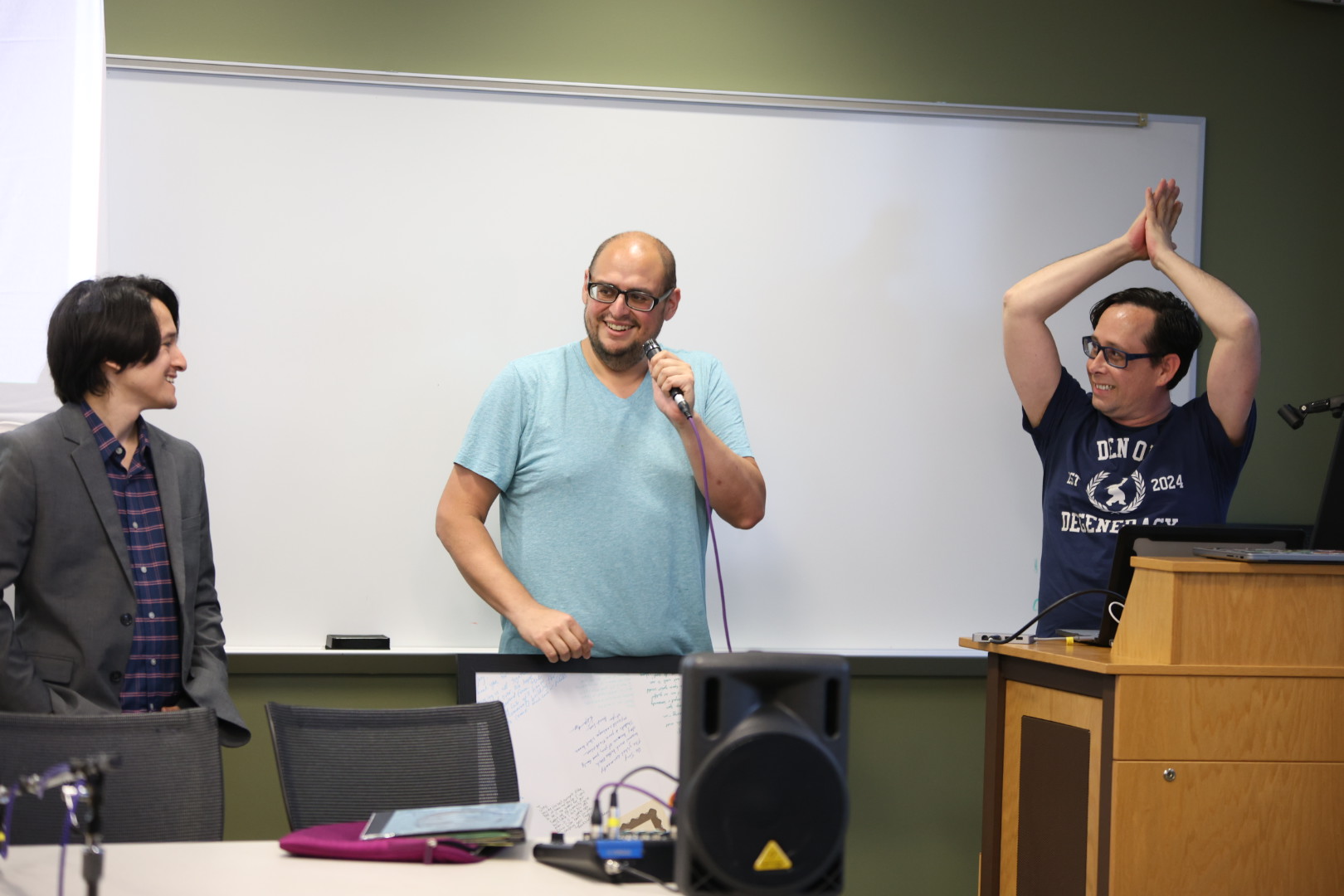
Texas A&M University, Department of Communication & Journalism
The Texas A&M Department of Communication & Journalism’s Graduate Program presenters were Dr. George Villanueva and Dr. Anna Wolfe. They both contextualized the program and it’s efforts to foster multimodal works, as well as provided insight into course work performed in their courses. Then Ph.D. students Rick Pulos and Valentina Aduen presented their multimodal works with a great response from the audience. Master student Nathan Carr presented on video gaming and it’s role in mental health and it’s impact on society.
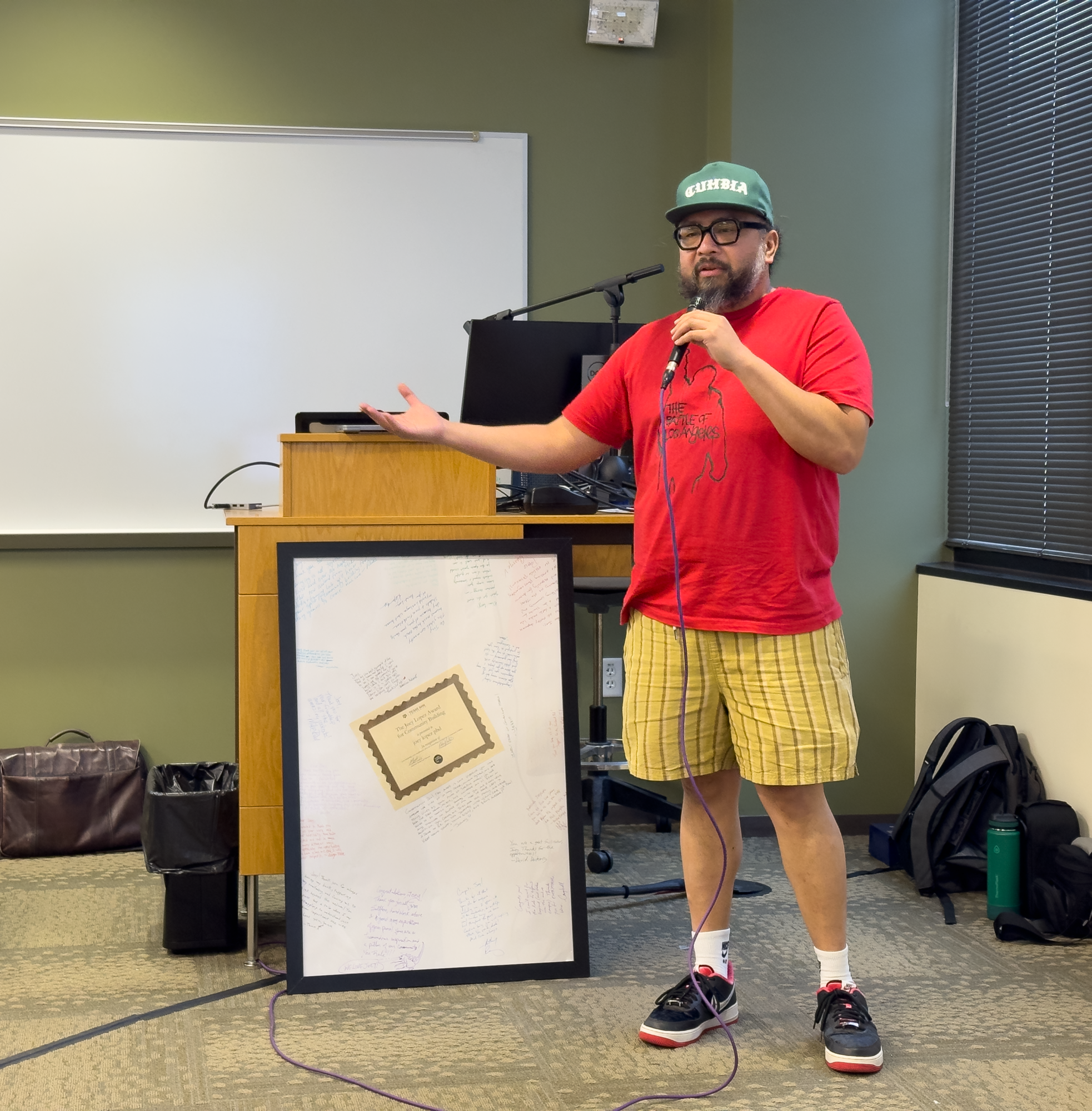
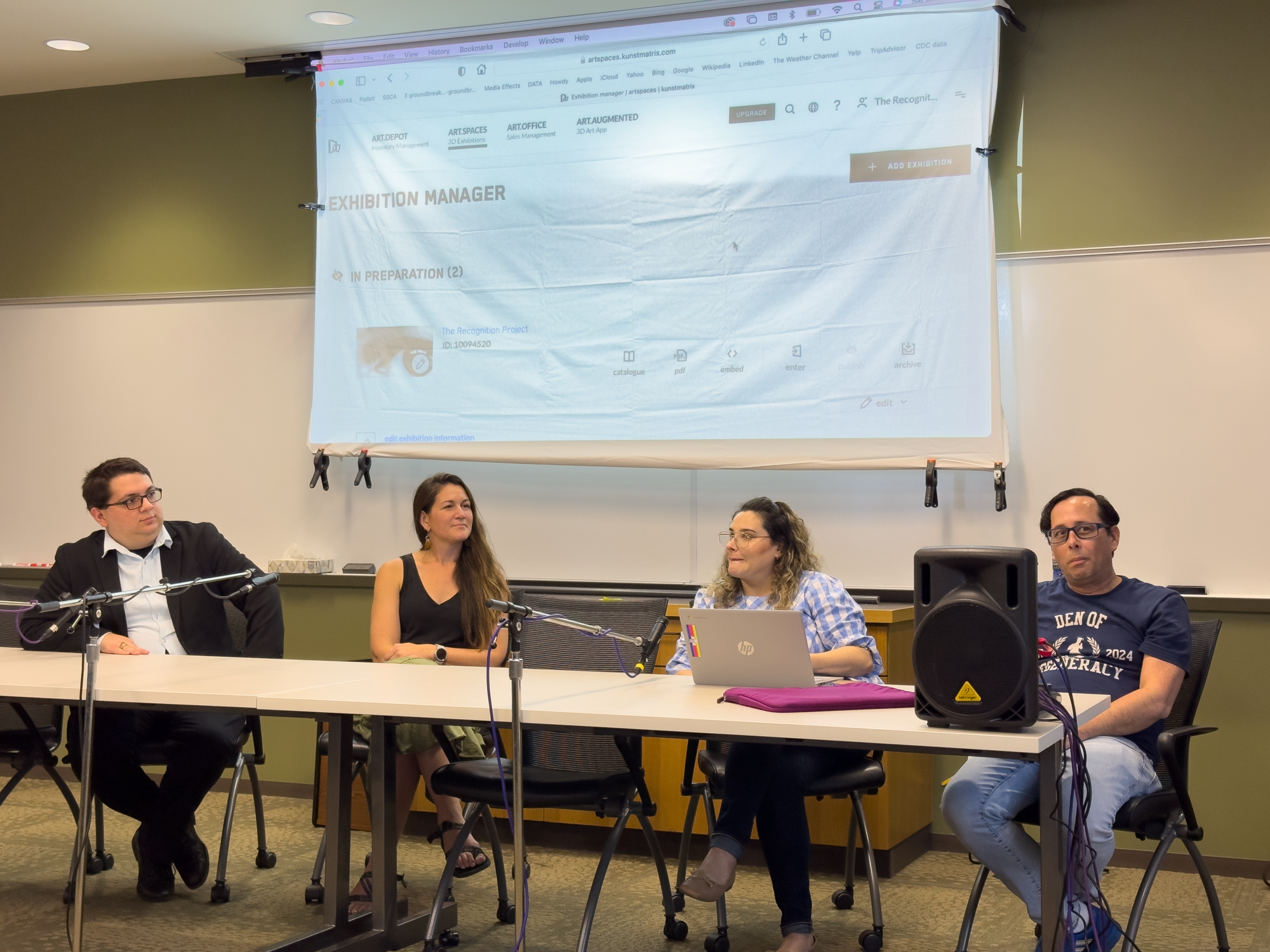
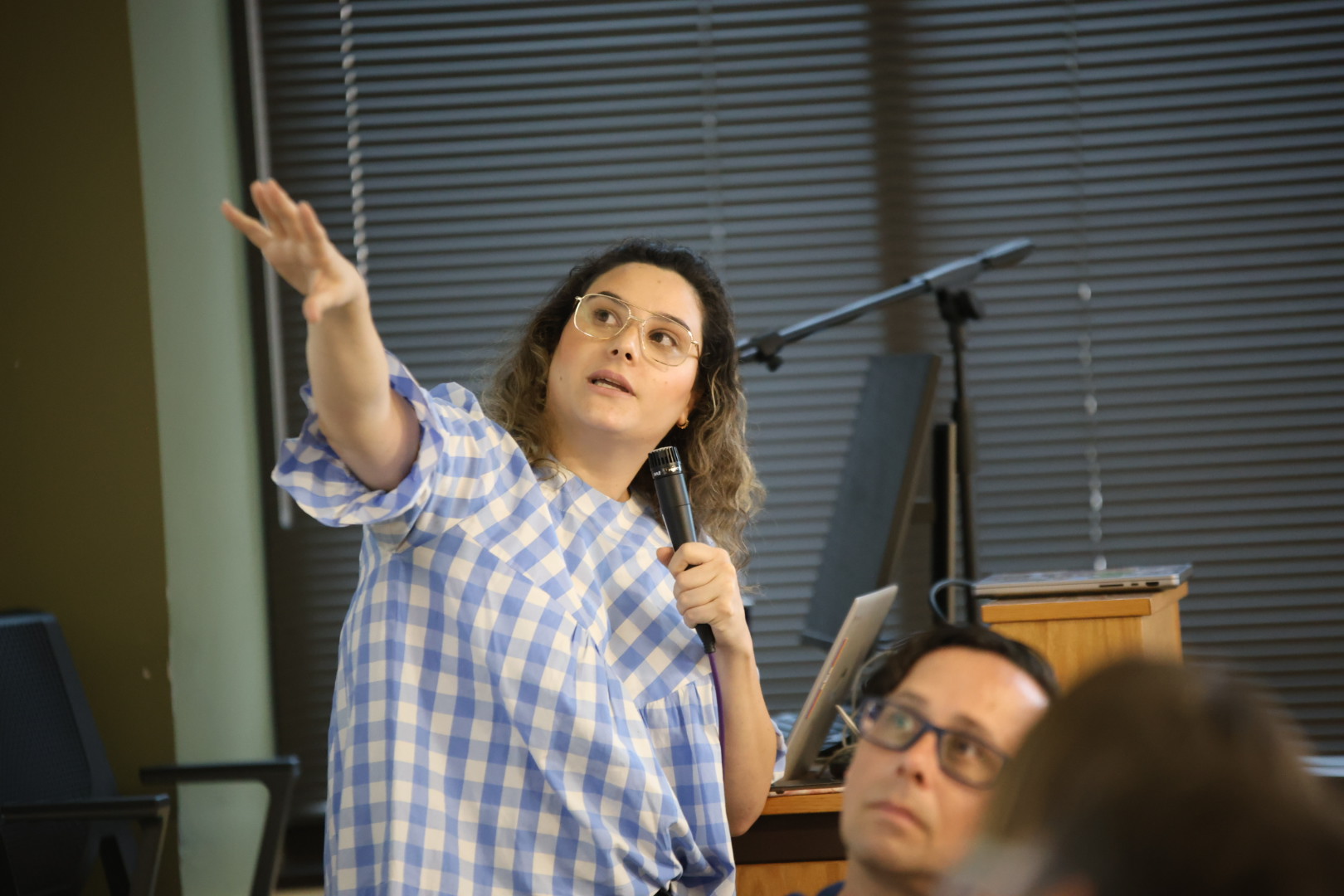
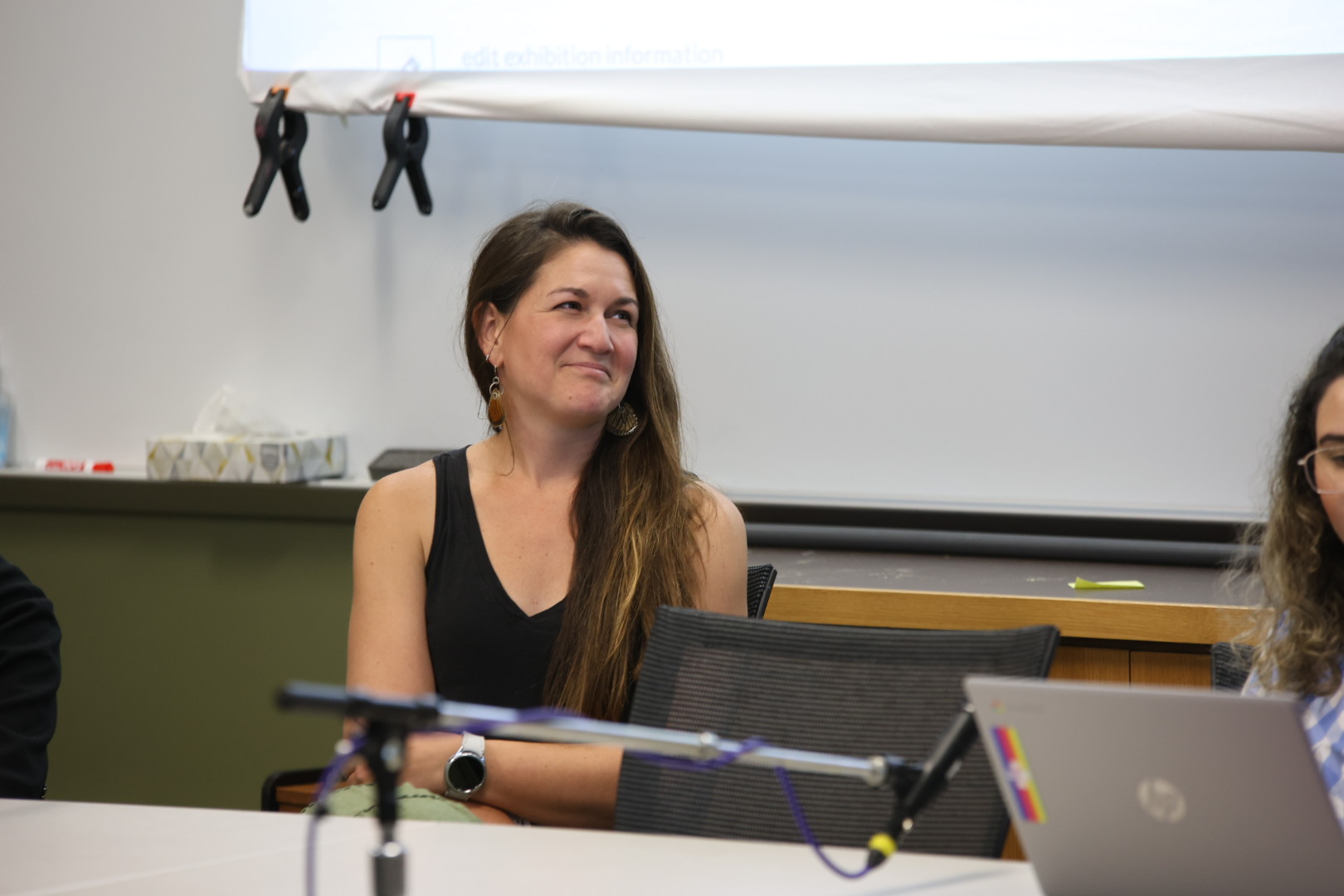
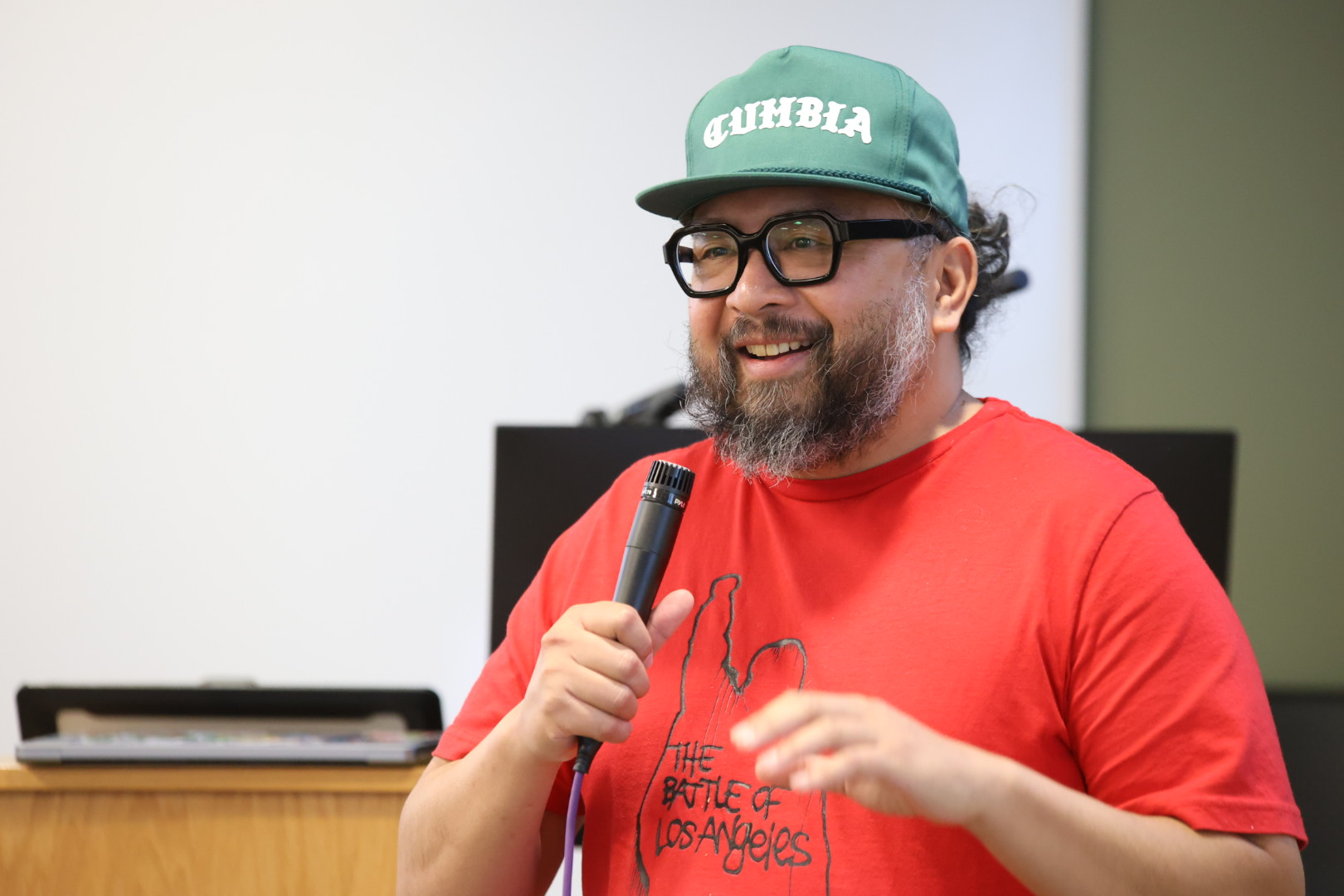
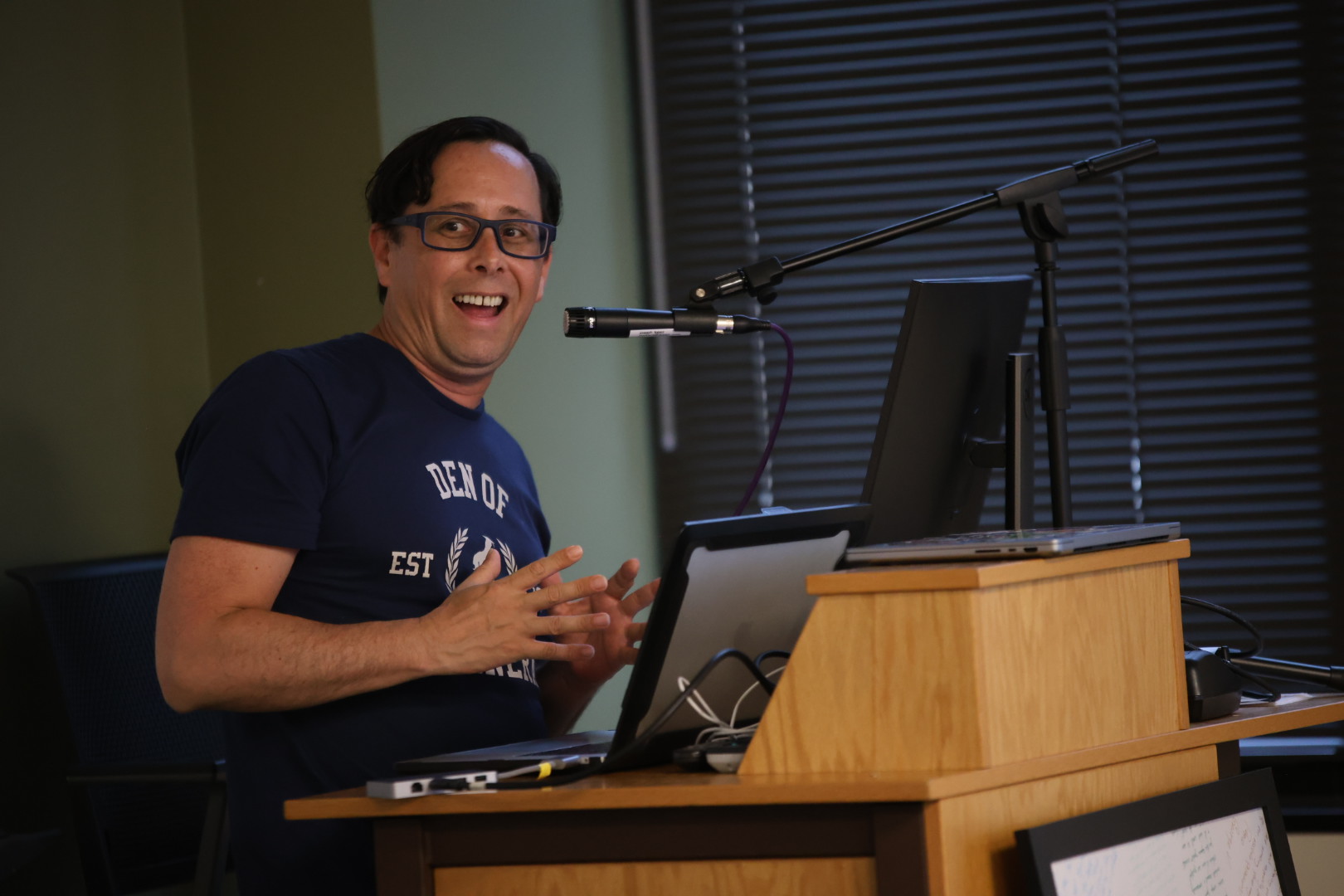
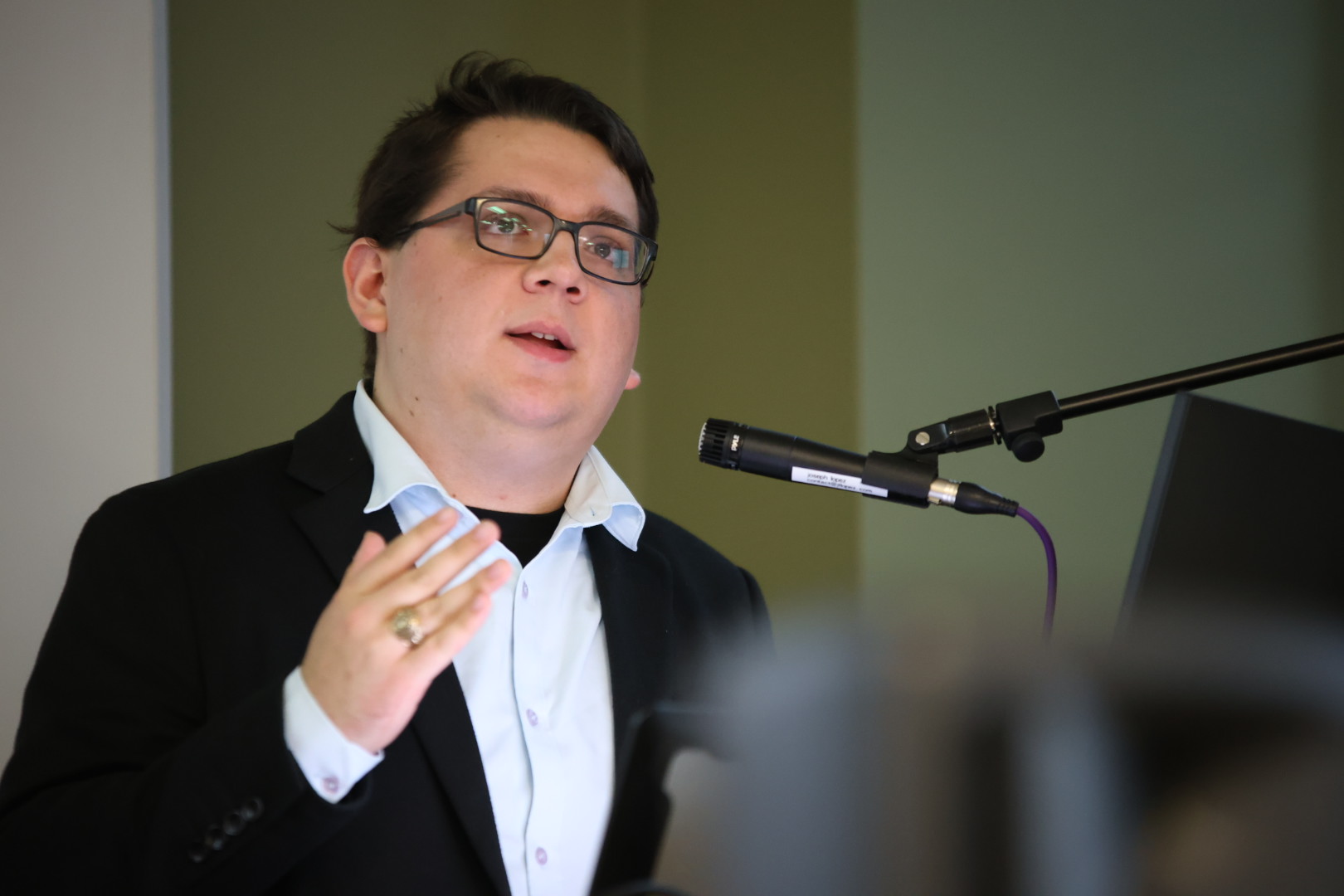
Texas A&M University, College of Performance, Visualization & Fine Arts
Representing the School of Performance, Visualization, and Fine Arts, Dr. Michelle Simms reflected on her adjusted approach to teaching that she expanded to embrace a master-apprentice style model. Dr. Matthew Campbell went on to discuss project-based education, involving STEM students in liberal arts studies, and a festival supported by the PVFA Performance Studies program, Lorefest, in which students were charged to research local or glocal folklore, then take that research and creative a performative presentation with the information uncovered and gathered. Campbell’s argument being that an approach to exposing non-humanities students to the benefits of humanities research may be through the production of creative output related to that research. Dr. Will Connor wrapped up the panel with a discussion of teaching methodologies incorporating a traditional Presentation-Practice-Production model and Constructionism philosophy that encourages a personalization and therefore internalization of materials taught by inviting the students to build an asset based on the course material. In his case, Connor’s students build noise-making devices and musical instruments and performed with them in “real-world” settings to solidify connections and understandings of the related practices and cultures associated with the instruments.
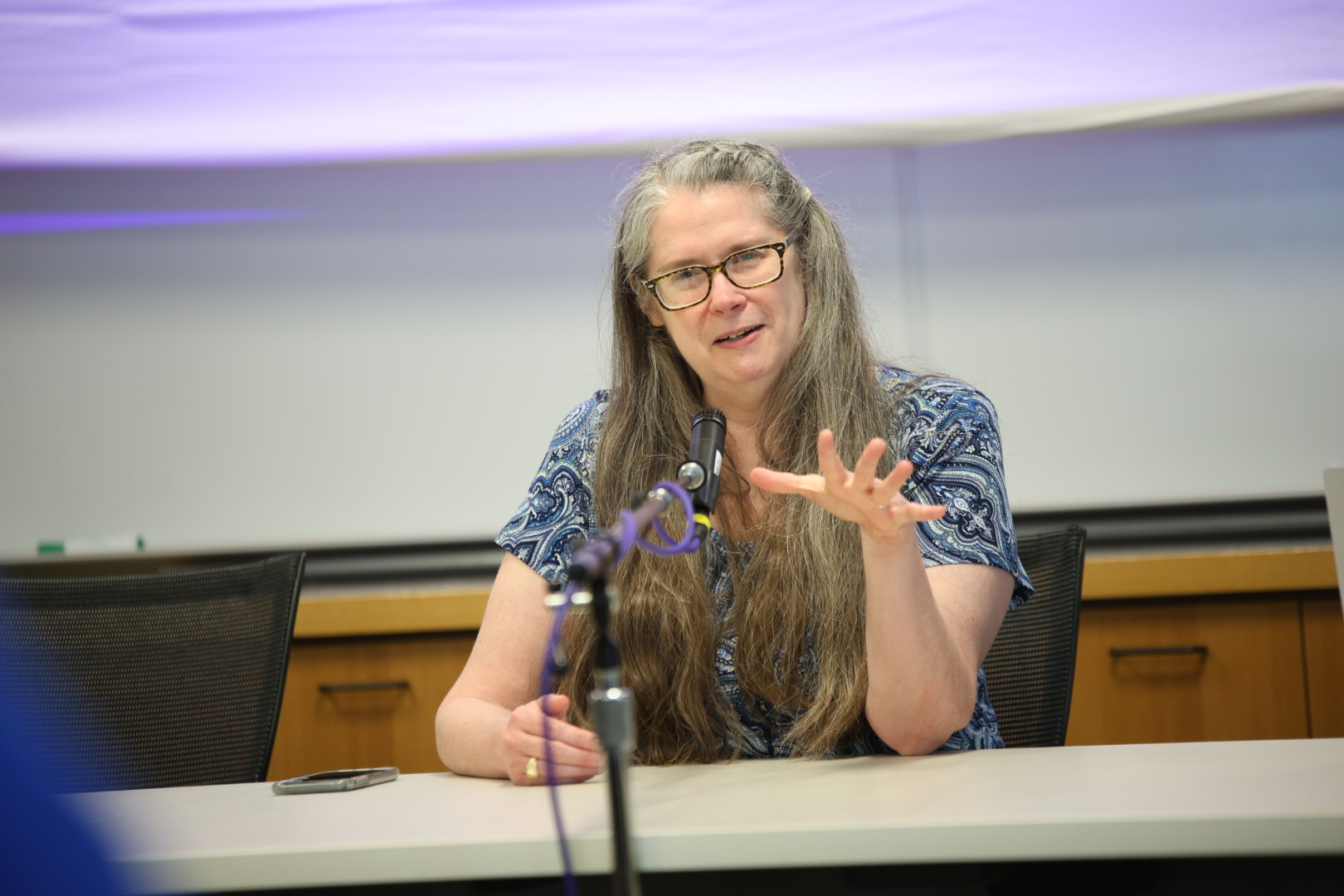
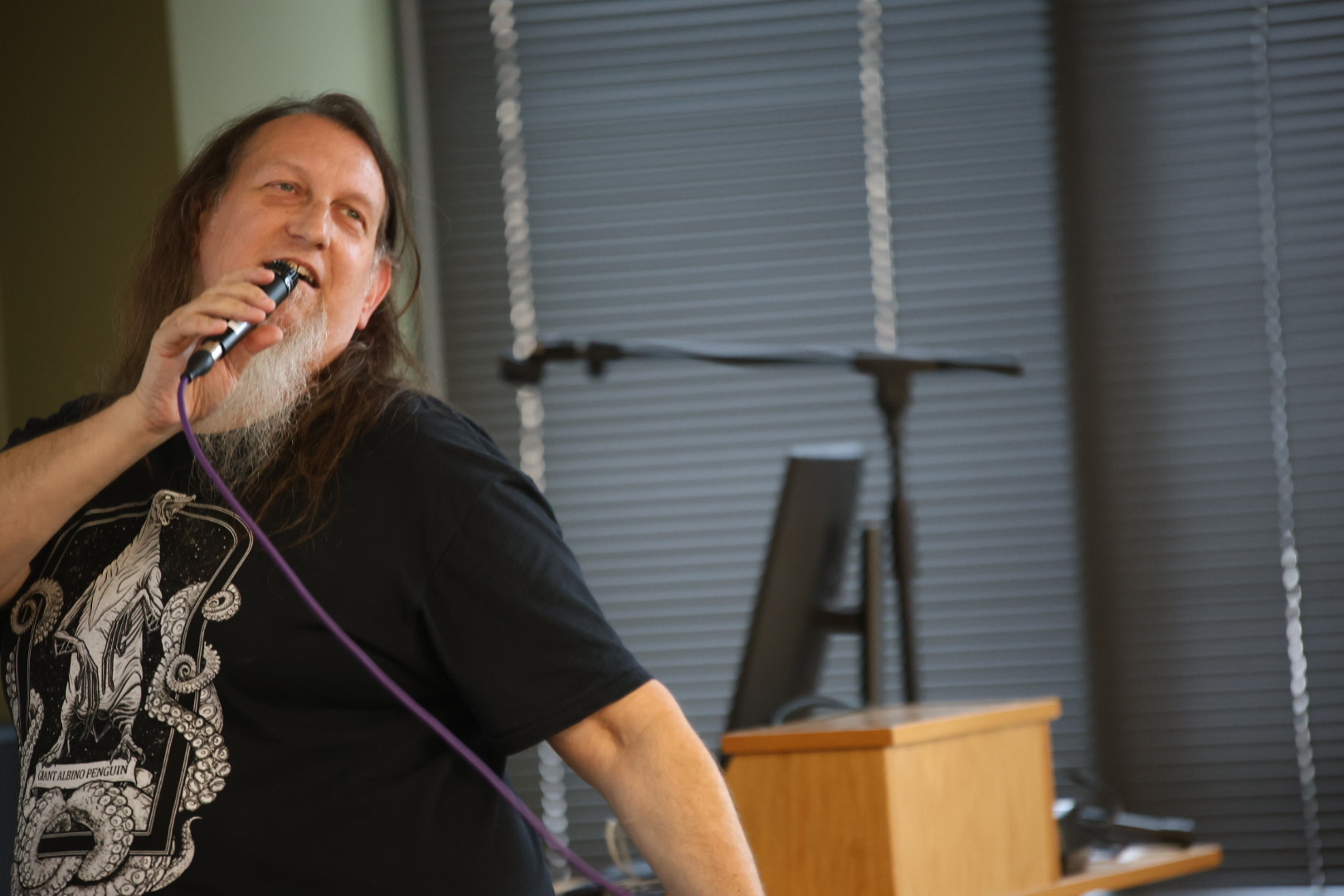
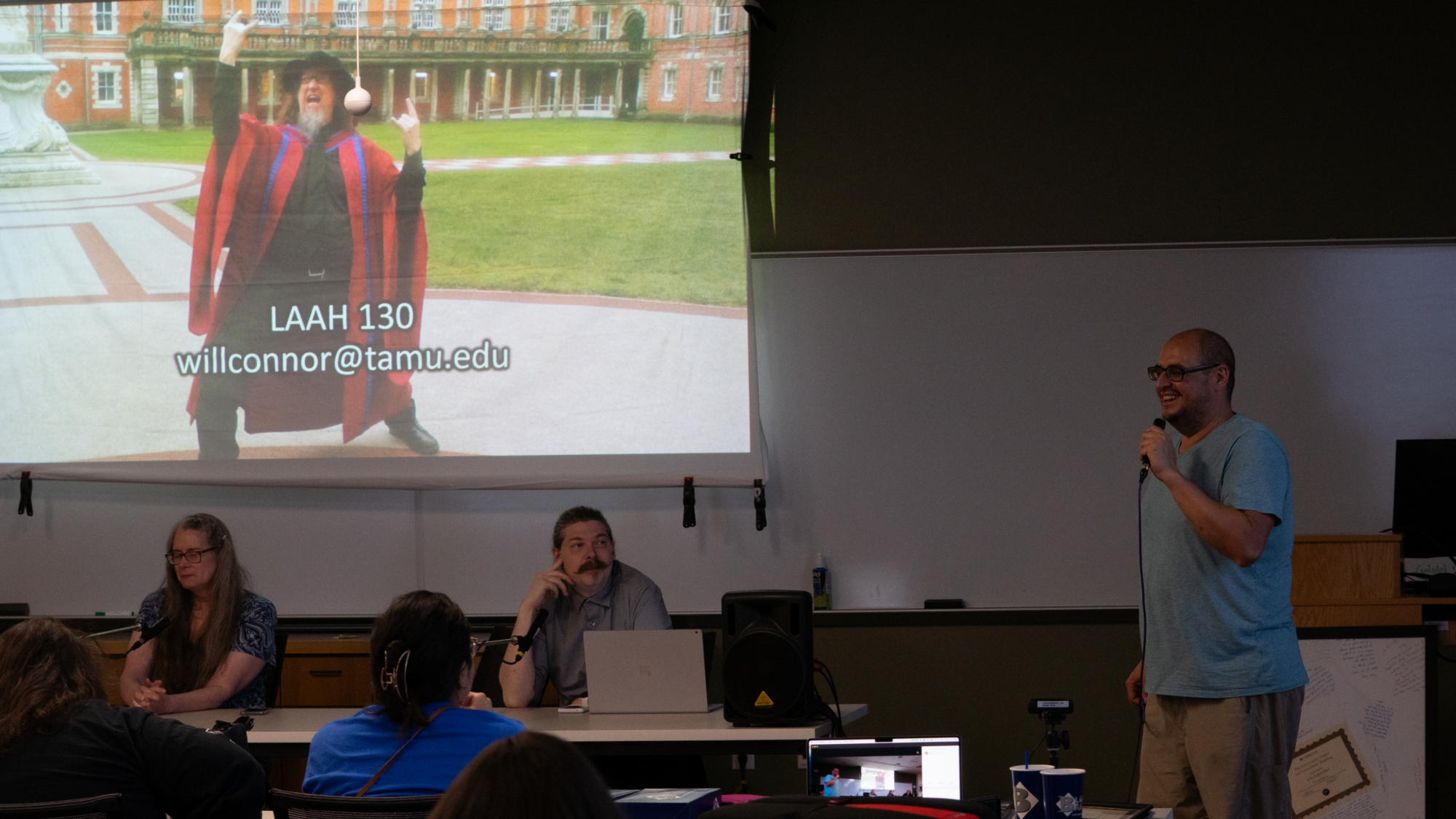
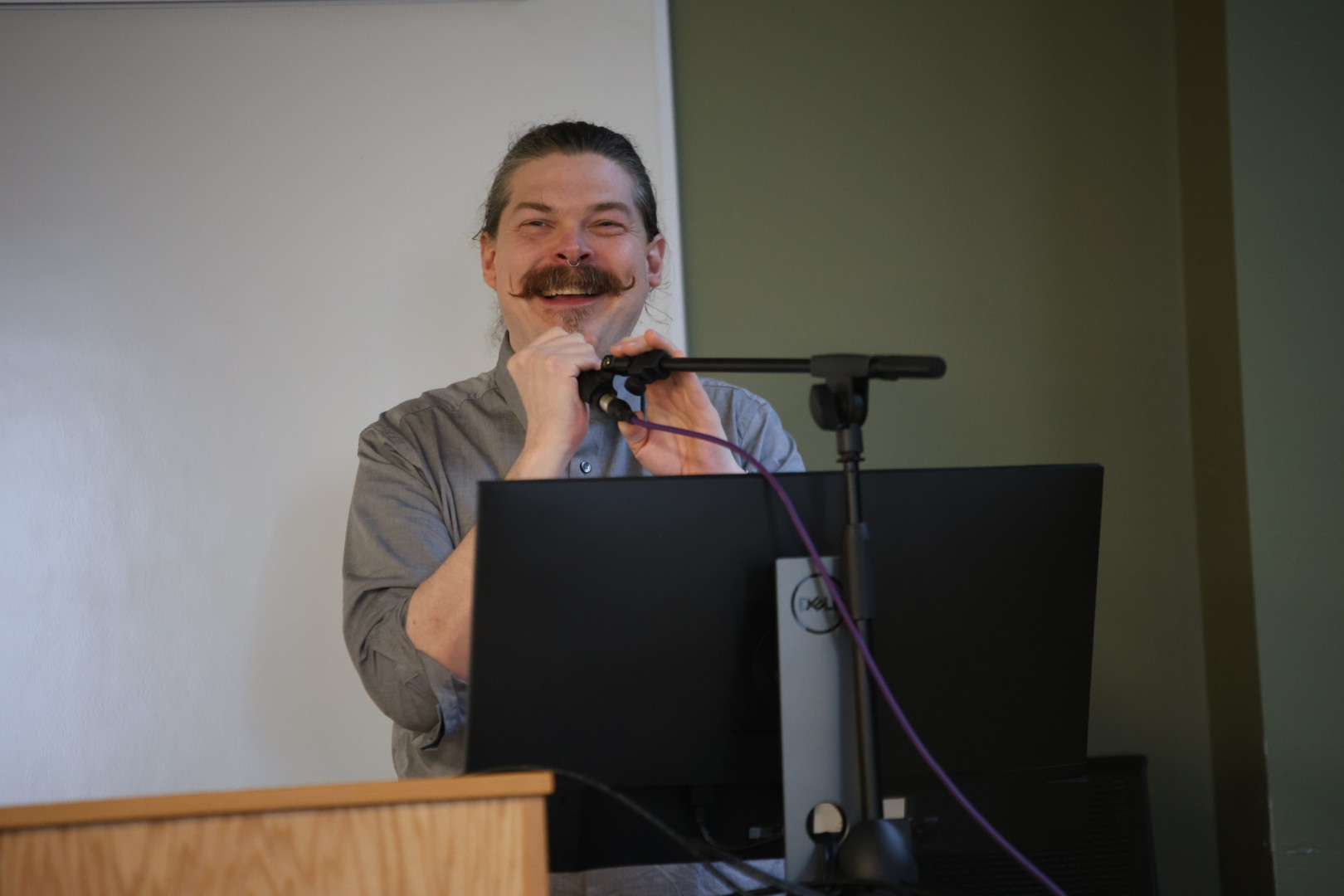
Community Panel
Curated by professor joey lopez, the community panel consisted of three unique individuals who practice community building through art in varying ways. Than Niles presented about his journey of community building as a film maker and then showed a trailer to one of his films that was suppose to be released right when COVID occured, he ended up working with the San Antonio Food Bank to put together a drive in theater experience which raised funds for the food bank. Then Victoria Snaith gave an amazing “academic self” performance jamming and riffing on the presentations and her own lived reality, bringing an energy and breath to the space that thespians are so good at doing! Inspired by the artists before him, Ernesto Cuevas seized the opportunity to expand upon the energy and incorporated some of Dr. William Connors presentation to do perform a live mural building exercise using the whiteboard and volunteers. What was created were intermodal works of art that built community and meaning through the sharing of symbols and their meanings. Check out the video:
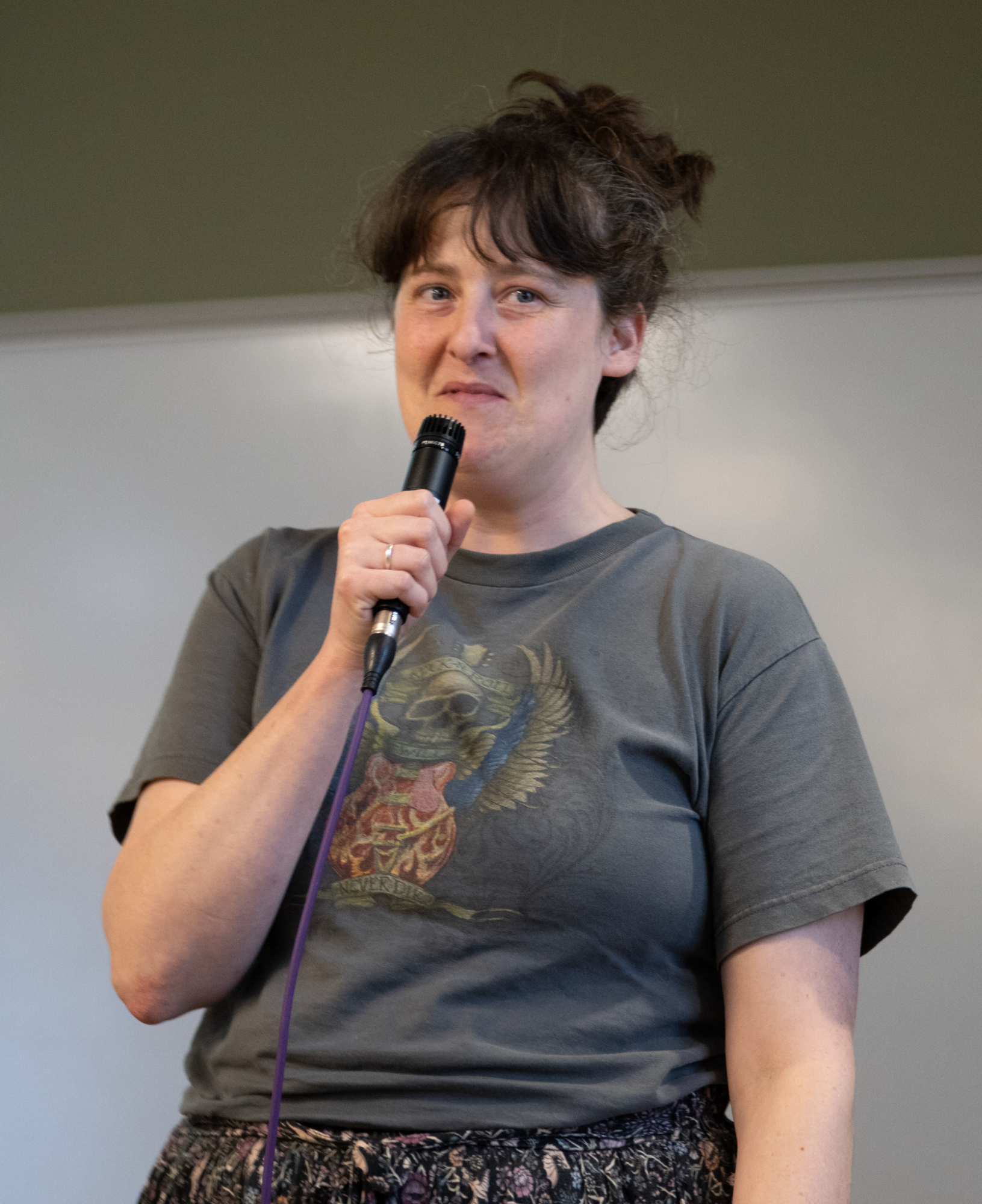
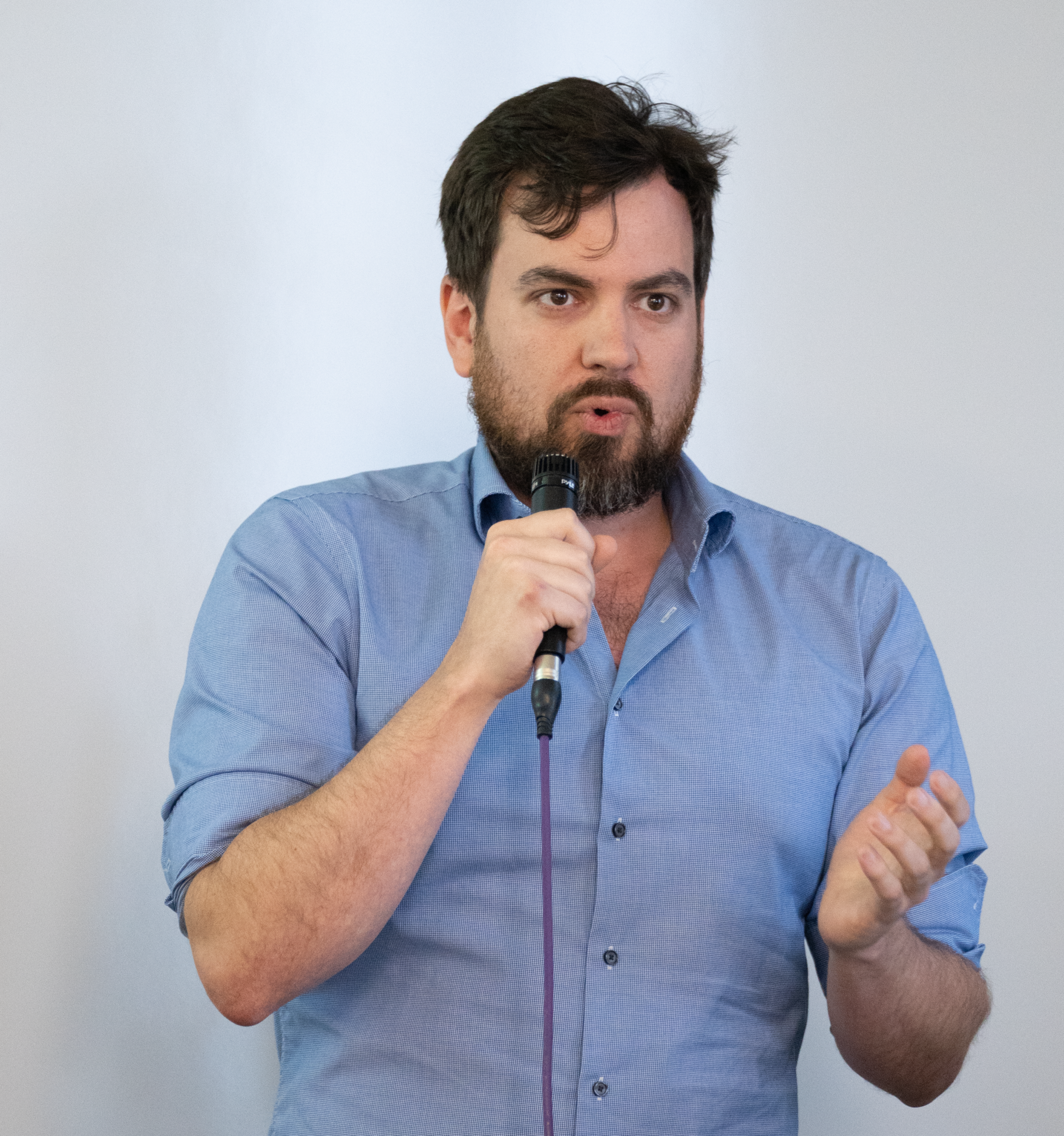
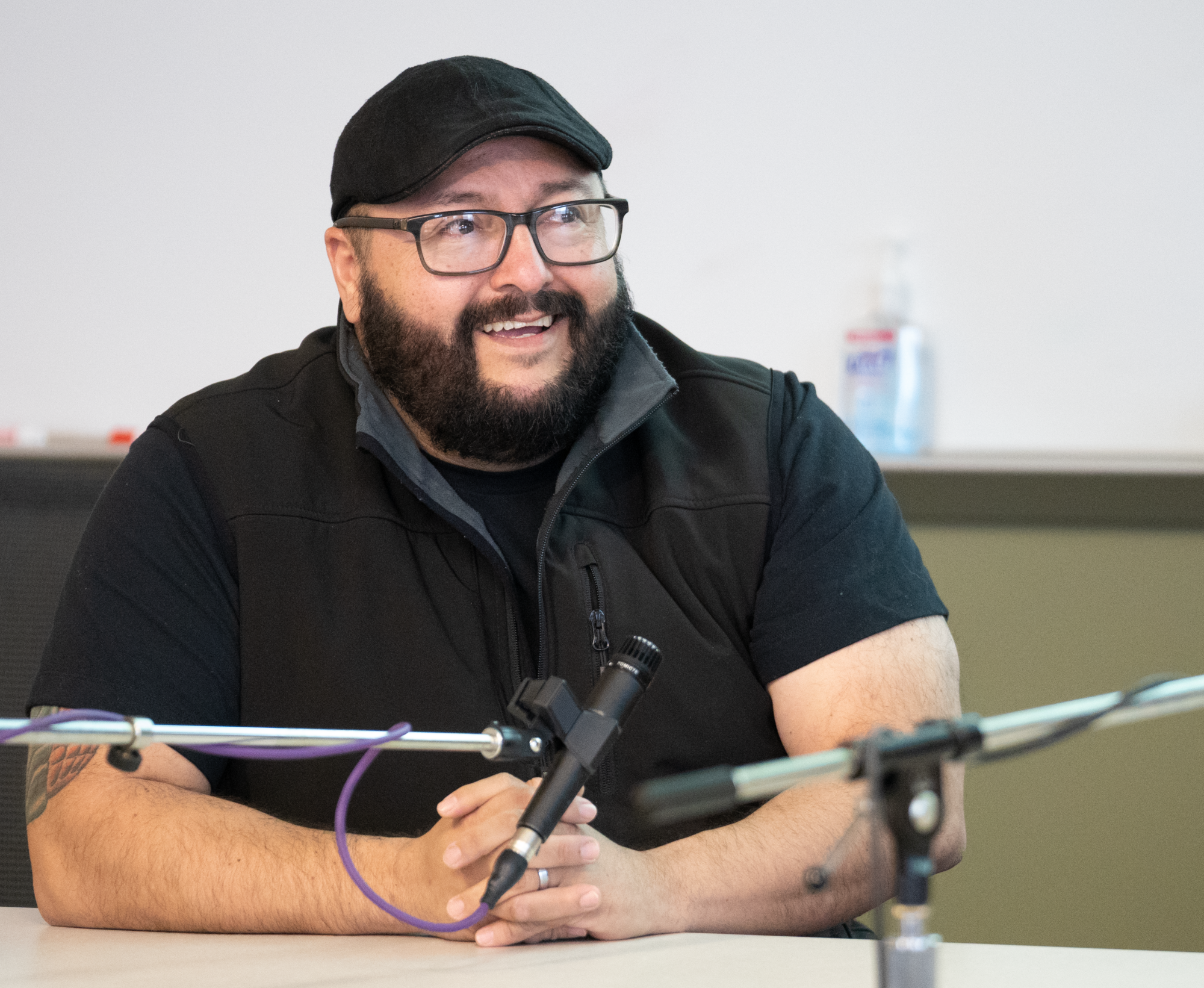
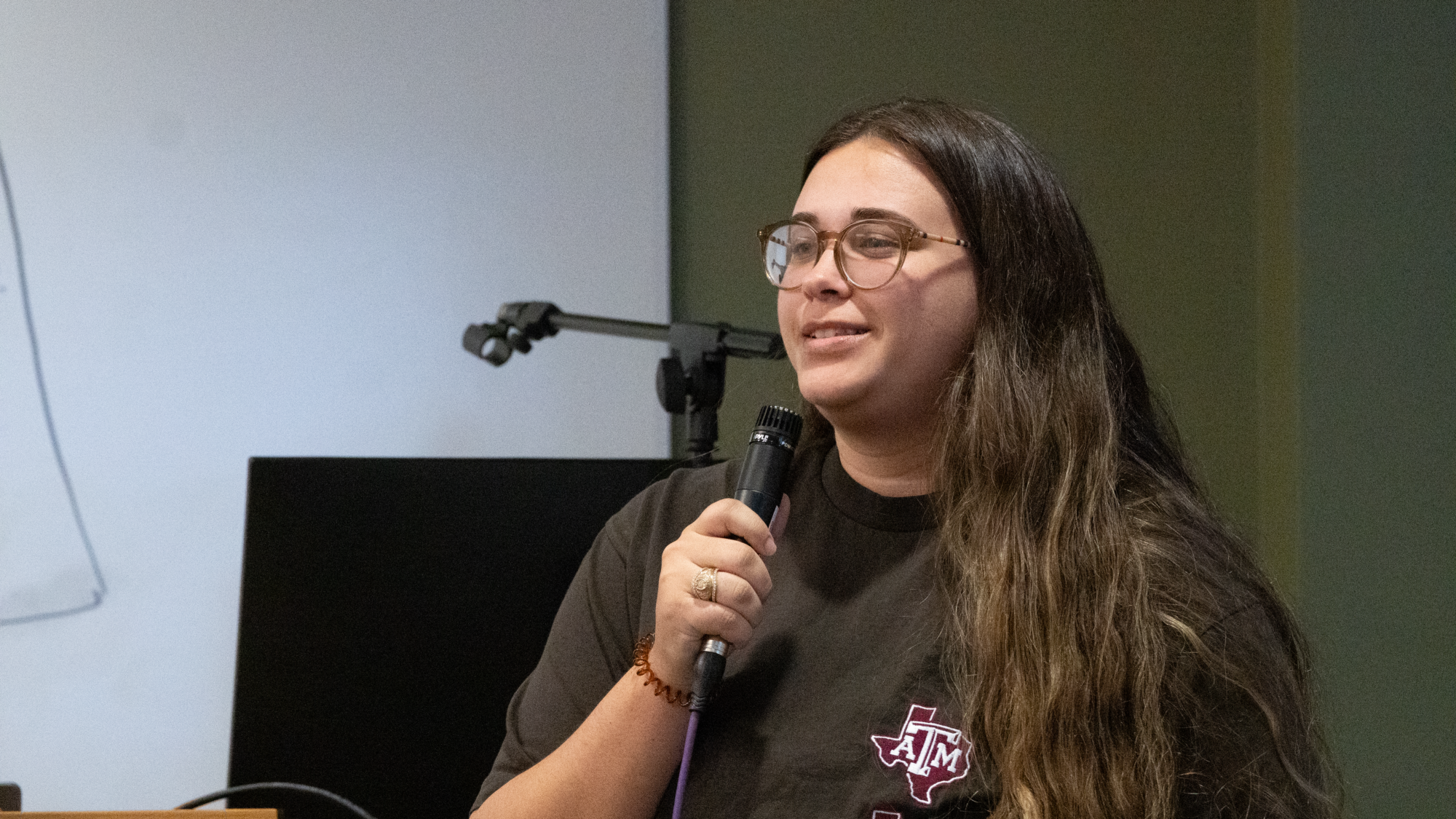
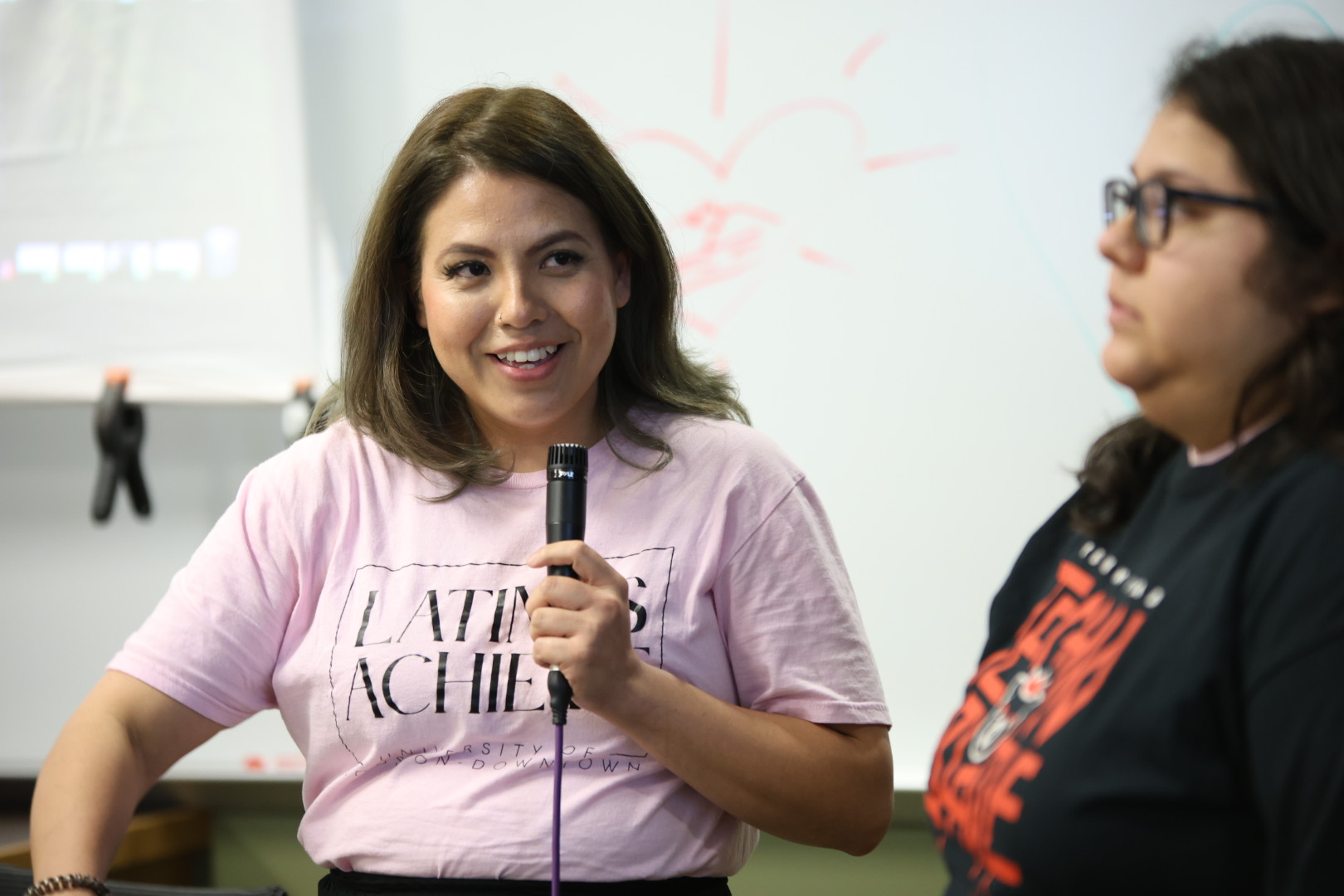


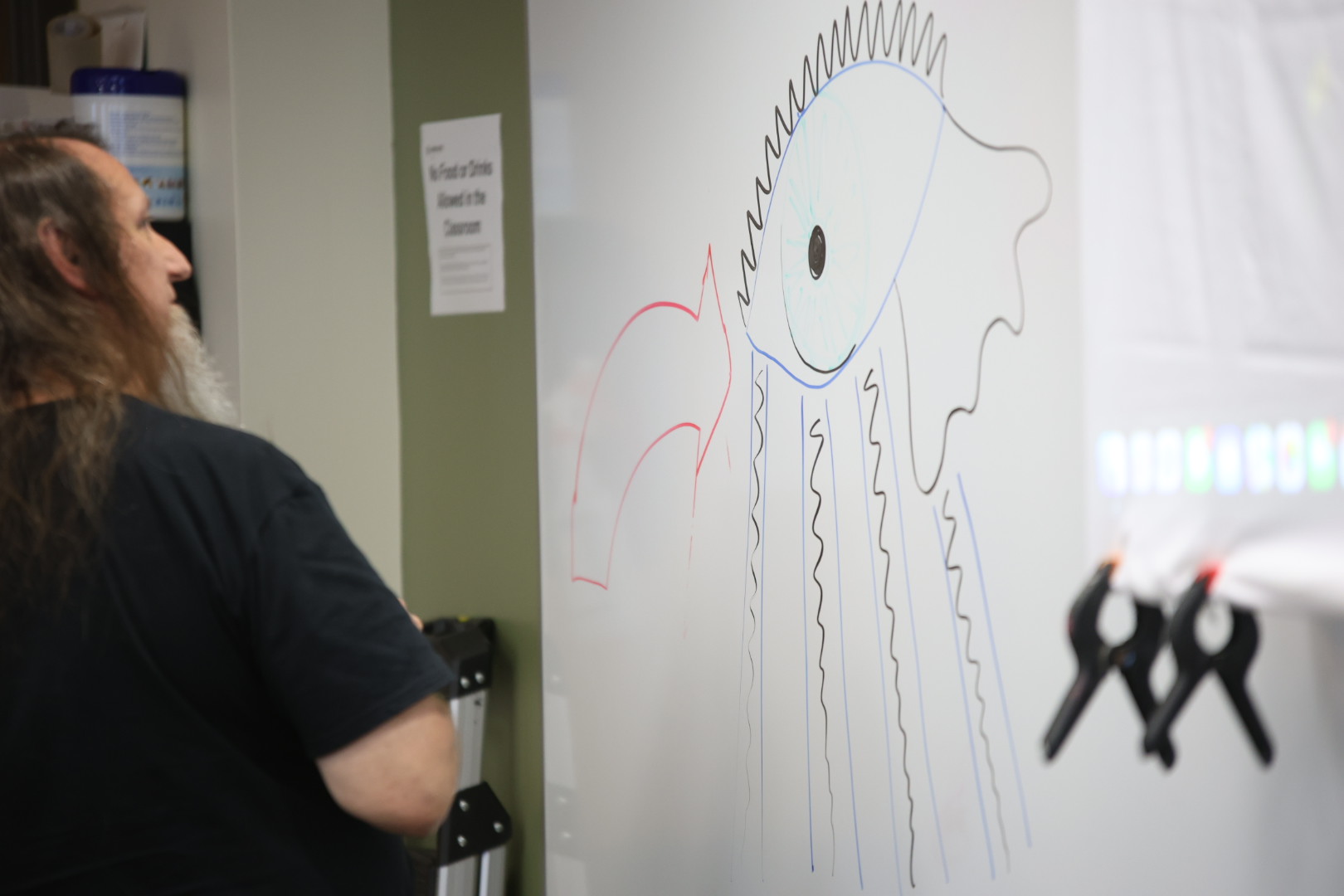
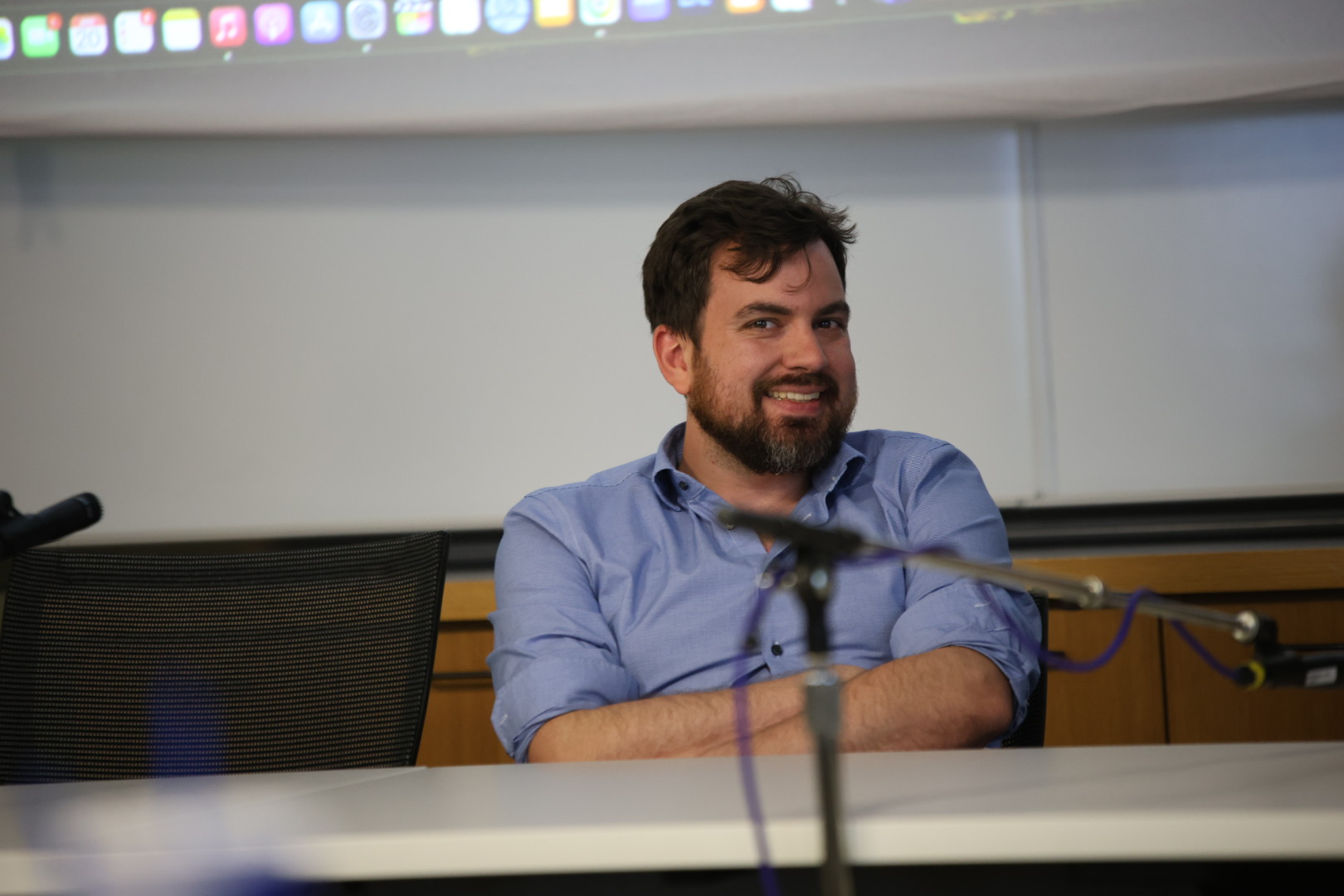
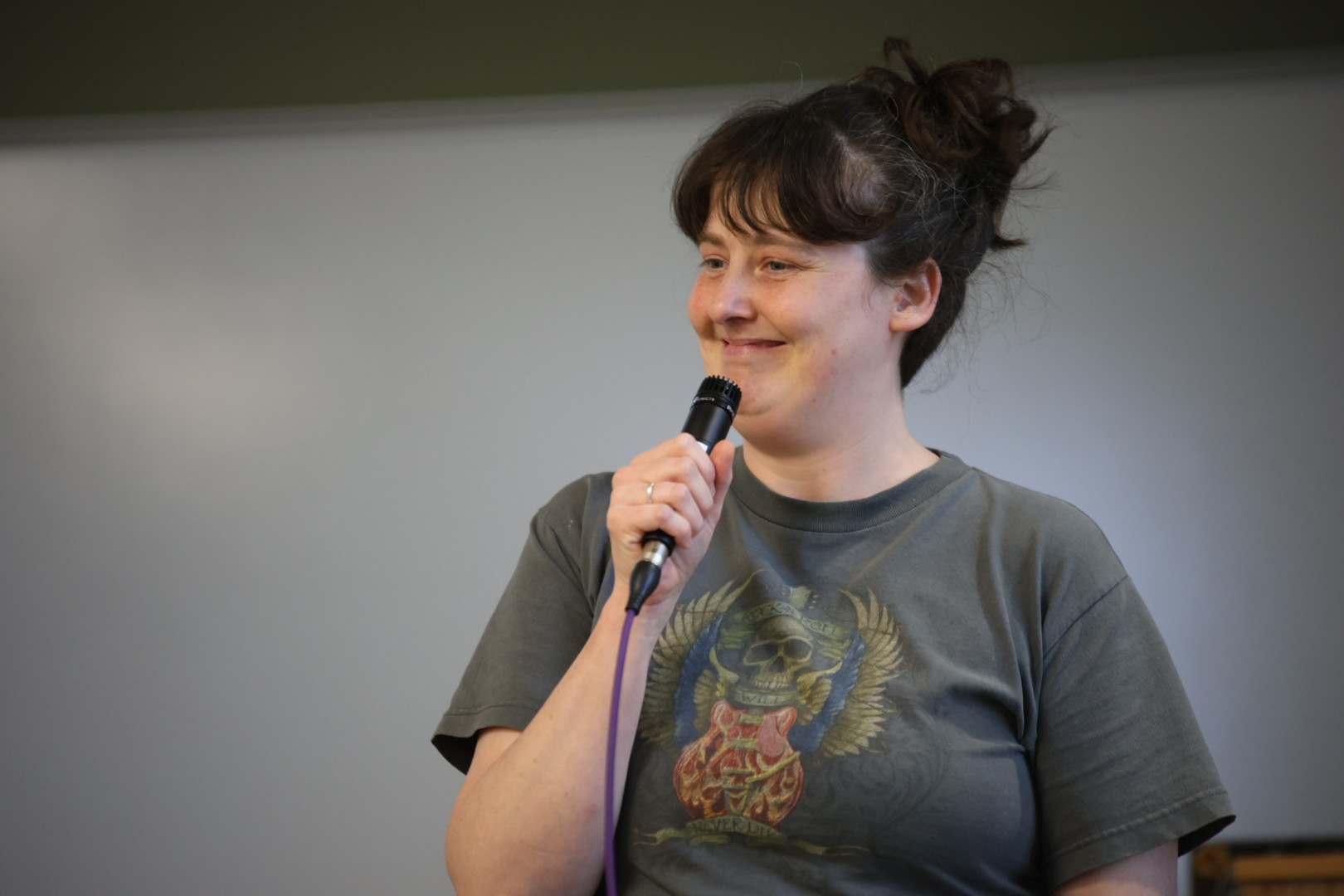
Texas A&M University Corpus Christi, Film Production Program
Professors Gabriel Duran, John Darbonne, alongside student Sara Carlson, delivered an enlightening presentation on TAMUCC’s Advanced Narrative Pedagogy. Professor Duran provided a comprehensive insight into the Advanced Narrative Film course, a distinguished 4000-level program meticulously crafted to immerse students in real-world film production scenarios. From the intricate art of casting to the nuanced orchestration of crew dynamics, and from the meticulous management of budgets to the seamless coordination of departments, this course stands as the bedrock of professional filmmaking education.
Expanding on this discourse, Professor Darbonne underscored the collaborative ethos of the curriculum, underscoring how students actively engage with complementary courses such as Advanced Editing. As a unified department, the goal is to amalgamate diverse talents into a singular project, pooling resources and expertise with the audacious ambition of clinching a nomination for the revered Student Academy Awards. This collective endeavor not only marks the pinnacle Capstone project for the department but also serves as a testament to the university’s unwavering commitment to nurturing cinematic excellence.
During the presentation, TAMUCC student Sara Carlson, who is enrolled in both Advanced Narrative and Advanced Editing, shared her firsthand experiences as the project lead. She elaborated on the challenges encountered and the invaluable lessons gleaned from participating in a class structured to mirror real-world environments. Following the presentation, an engaging Q&A session ensued, with attendees eagerly seeking insights into the implementation and outcomes of such an immersive educational approach.
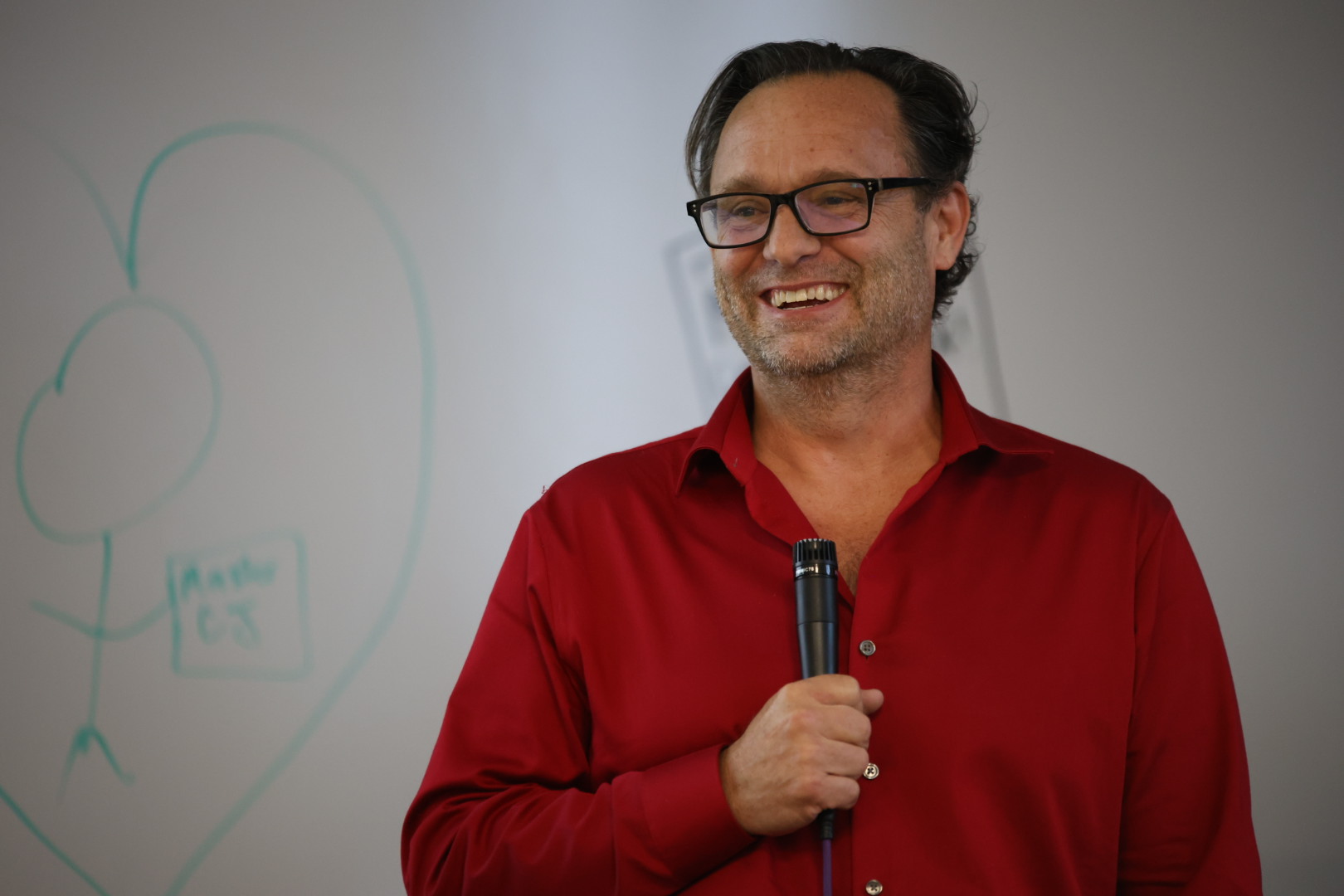
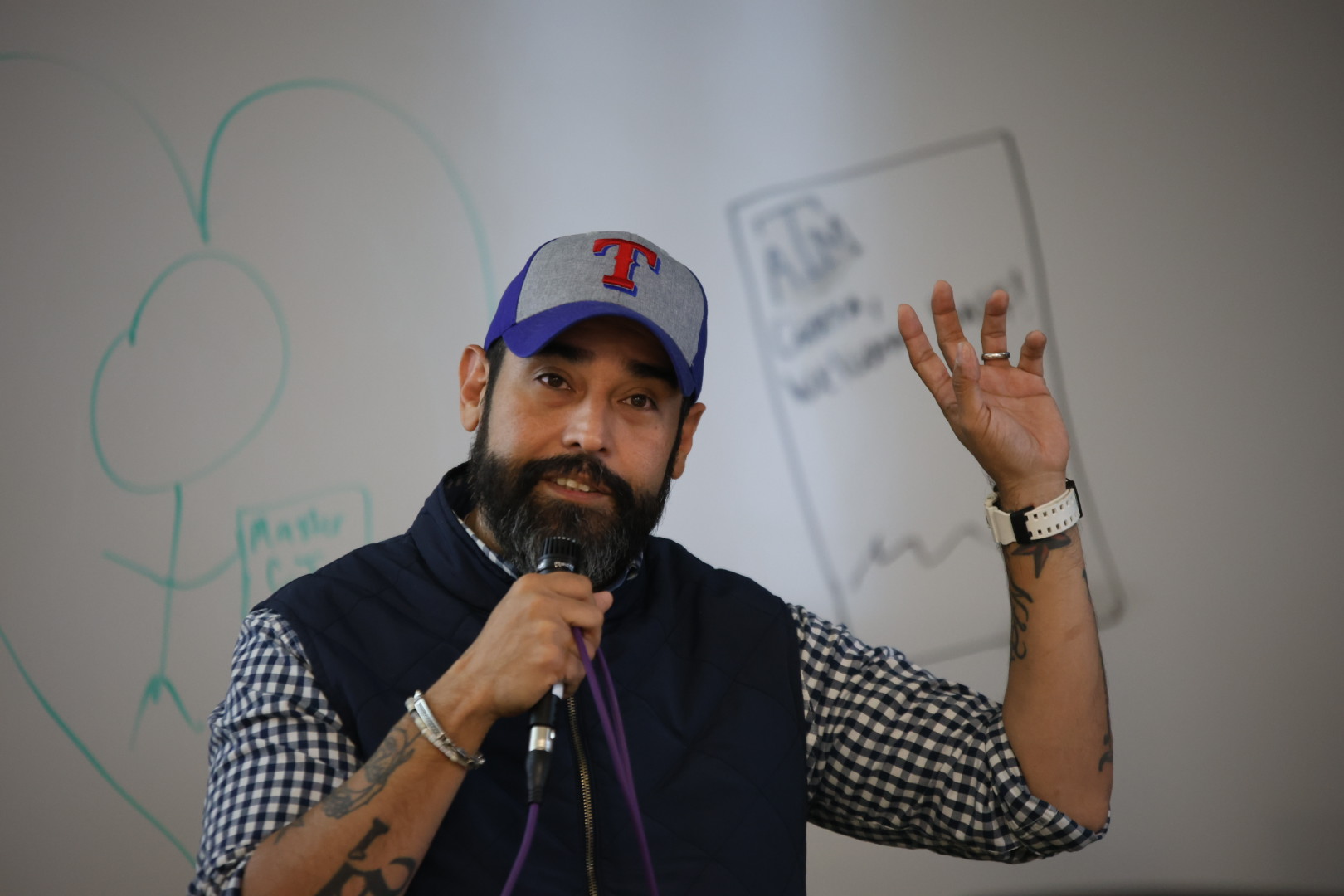
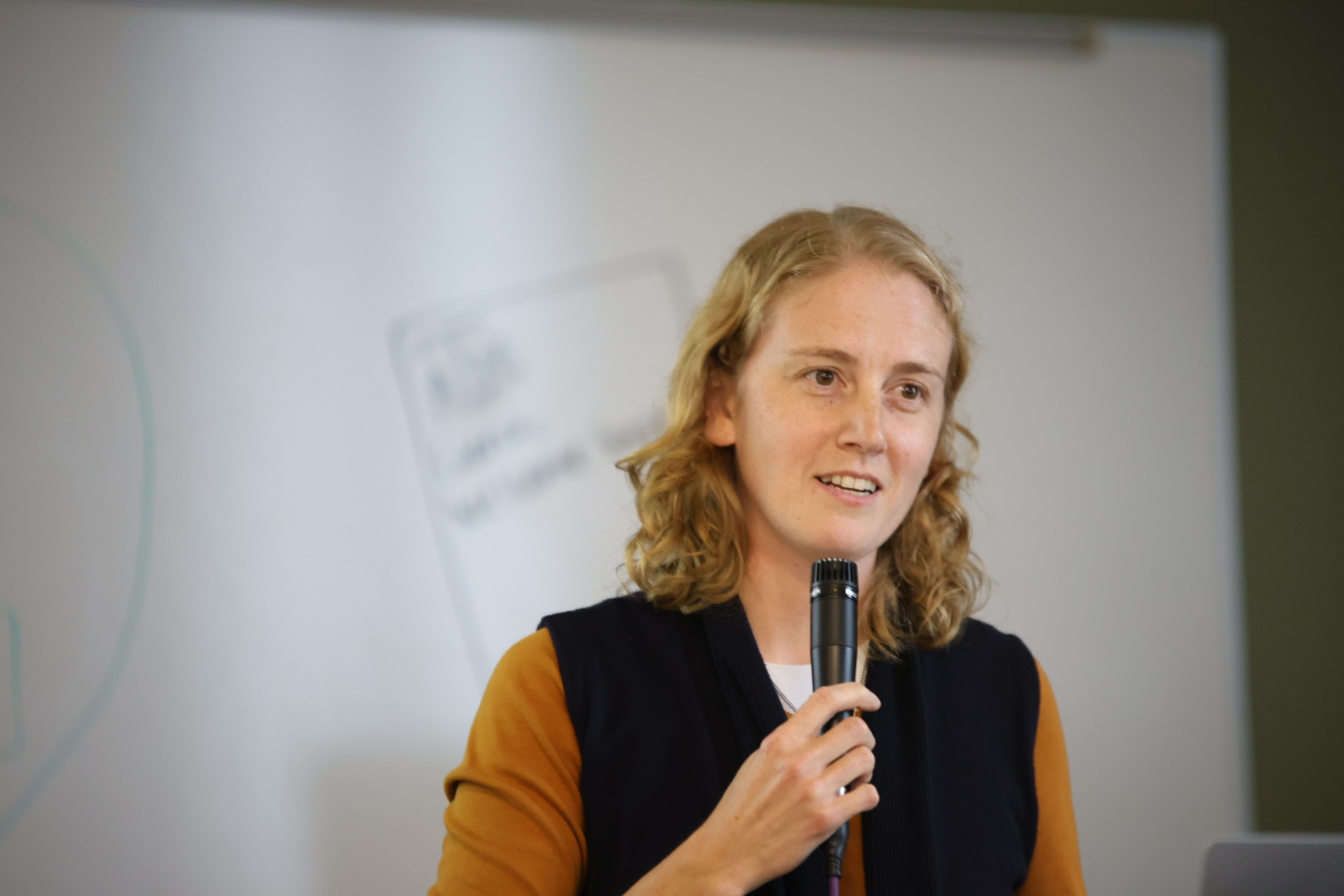
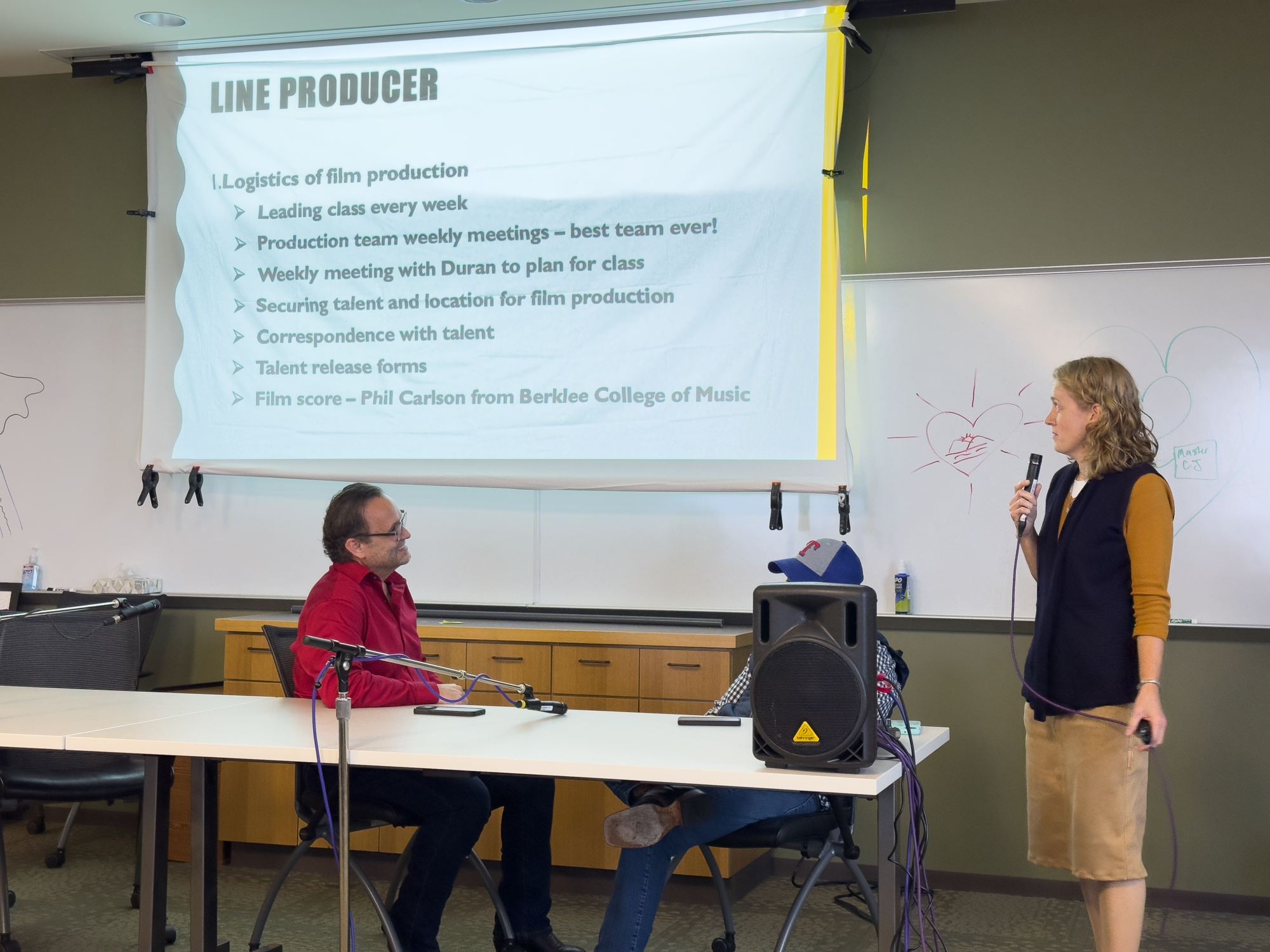
Conclusion
joey concluded the conference speaking about building community and reflecting on our own journey’s and how they impact each other.
What’s Next?
Our take away’s from this conference is that we are definitely having another! We have begun working on one to take place in San Antonio, TX. We will see where that goes, our hope is to include k-12 and higher education alternative pedagogically based programs. So stay tuned!
